#Dolores Albin
Text
La madre silenciosa au character sheets!!
Btw many of the kids are from other towns as well!! The magic bought them and Dolores together! And Alma, julieta, Agustin, pepa, Felix, Isabela and Luisa are referred as “other family“

First we have Paloma, his family owned a shoe shop in bogota, his dad was abusive to his whole family, especially to him because he acts “girly“. He didn’t like making or fixing shoes, neither did he like the “manly“ activities his father forced him to do. He became a bully to protect himself from anyone, Paloma regrets it a lot though. Paloma hated his life and father very much, his mother never did anything besides watch which made him hate them even more. He realized that he loved baking a lot, at that moment he knew that he wanted to become a baker. When his father found out it wasn’t so pretty, he raged out onto him and in the same day Paloma ran away. A week later he was in the Encanto, that’s when Dolores heard him and took him in! He got adopted at the age of 8, a year later he got his gift and he has been the happiest ever :D it didnt take him a while to get off his habit but he was relaxed after.
Next is Camilo! Since birth he was more of an mama‘s boy, yet pepa didn’t pay much attention to him, only when he needed to get praised. Dolores on the other hand made sure to give him the motherly love he deserved. He didn’t like the feeling of Mariano appearing like an father figure for him, he was angry at Felix for lacking at it, but he adapted Mariano quite fast. He was often grouchy about the fact that his parents don’t care. His gift also made the situation worse but his real family always helped him which got him better though time. He loves to take care of his little siblings and in the same time being an wild teenager!
Ines is a "special" child, well at least for a lot of people. She has albinism, her parents thought she was some kind of evil spirit so they treated her rather badly. Ines got bullied from the neighborhoods because of her condition, the school didn’t accept her in either so she didn’t knew to write, read or properly speak. She really isolated herself from the world getting sick often since she stays in her room 24\7. Dolores heard about her a couple of times, she helped ines to get better at basic stuff, she schooled her and took her in when she was 9! Dolores noticed that ines had major anger issues, so she decided to put her in therapy to help ines, which worked a lot! Maybe she can snap sometimes but she‘s working on it. Also she dye‘s her hair because she doesn’t like the white color, she gets reminded often how pretty her hair is but she still won’t like it.
Finally mirabel! She is still giftless in this au, the other family still acts as if she were a curse (besides Luisa). Mirabel obviously tries not to think much of her being giftless even if she is reminded every day. Her parents maybe cared for her more than camilo‘s did but they stopped caring when she didnt get a gift, always making the same excuse “im busy“ Dolores knew mirabel didn’t deserve to get treated like that just because of her gift so she did the caring! Mirabel learned a lot of stuff trough her family, but what she loved to learn the most was the sewing skills her abuela Fiona’s showed her.
They all became a group, since they were raised together and been trough a lot together, their age made them closer too!!

Xavier had a pretty rough life, his mother died at birth and his father hated him for it. His father always looked him up into tight and dark spaces because he didn’t want to see him. Dolores reported him for some crimes he did, just so she could take Xavier in, he was 6 when he got adopted. Xavier was a bit shy at first but he grew to be a very brave boy! He looked up to Mariano a lot and practically did everything he did because he thought that if he did anything wrong he was gonna be put in a tight space again but they made sure to help him with his habit, now he is just wild!! Basically being himself.
Juan is Xavier’s best friend!! Which he is really greatful for since Juan never really had friends. He came from a wealthy family in bogota, he didnt like being wealthy because he got bullied a lot for it. It would get so bad that he often needed to be hospitalized. Because he is from a wealthy family his family doesnt accept him either, they ignore him, dont take care of him and neither do they try to stop his bullying. Like Paloma he ran away out of anger just that this time when he fell asleep in the woods, he woke up the next day in a cozy bed instead of his old cold one. It took him some time to adjust with the people in town, especially the older ones. Juan ran away when he was 8, and he first got his gift 3 years later because the miracle felt the anxiety in him, however he now lives carefree and safe!
Andres had a traumatic past, his blond hair and blue eyes made him get praised by a lot of people which made his parents realize the fame. Andres‘s mother was by far more obsessed with fame so she ofc did everything so people would notice him. They forced him to do stuff just so he would get praised and famed over, if he ddi something wrong he would get punished. When he was 7 he lashed out and his mother burned him with fire as punishment. That happened at night so Dolores got woken by screams, she got his parents arrested and took him in. Andres still tends to avoid a lot of stuff but it is noticeable how he is working on getting better!!
Luz is a bright girl!! Now her mom cared for her however she didnt take care of herself. Her mom always argued with her dad since he was somewhat abusive, at the end she divorced him because she found out he was having an affair. Life was hard after that, luz had to take care of both her mom and herself but after a year her mom took her own life, needless to say it wasn’t a pretty view. She got adopted by Dolores at 5, sometimes Luz has panic attacks because of the trauma so she regularly goes to therapy too. She‘s getting way better! Luz looks up to Isabela often because it seems like she and her mom don’t only look alike but also have a lot in common.

As you can guess Marcia isn’t liked because of her eyes, some of them find it freaky or weird. She actually had a quite big family but they hated her for being different so they tried to get rid of her. (Iykyk) Marcia was extremely traumatized by it, Dolores scolded the entire family including arresting the older ones, needles to say she wasn’t so happy about what she heard. Marcia isolated herself for 6 months after, her family were with her the entire time to help her. The passing months she was getting better and Marcia started to open up. Now she’s happily learning how to write!! Dolores adopted her at 5 years old, kinda sad she was this young.
Lyla had good guardians, her grandparents took care of her till they died, which was when she was 4, after that her parents took her in and since they were young they didnt attend to take care of her. Dolores was already good friends with her grandparents, they knew that her parents wouldn’t take care of her so they asked Dolores to do it. Dolores talked with her parents and adopted lyla!! Layla basically already grew up in the casita so she is pretty used to everything, yet she does need help if it comes to the stairs.
Carlos was actually a homeless boy, his parents left him on the streets when he was 3 and he was on the streets for 3 years till dolores found him. He got picked on a lot and he was skinny which made him insecure too. When Dolores found him he was barely holding on, so he got spoiled a lot ofc!! They helped him with school which he didnt like learning at first, but later on found out he could read comic‘s with it. Plus he became very confident too!!
Esteban has divorced parents, both of them absolutely HATE eachother so they make him their weapon. Every once a week he has to visit the other parent and before he goes the parents tells him to do this or to do that. Esteban doesnt want to do it, he doesnt like it, he feels guilty about it but he knows the punishments. Both of his parents were arrested for the crimes they did (i wonder who reported them) dolores adopted him when he was 8!! Esteban got nothing but just affection from his new family, he loves them very deeply and feels safe with them than he ever has.

The triplets had it very rough, they were selled by their own parents. The ones that bought them treated them very bad, they experimented on them, hurt them for fun and did a lot of other bad stuff. They escaped the place and hid in casita. Dolores found them and adopted them! It took them the longest out of the children to get used to a normal life, but now they are pretty comfortable with their new family! She found them when they were 5, pretty young, sometimes they still struggle a lot.
Leandra‘s dad is pretty troublesome. He always gets in trouble with some kind of bad gang‘s, as you call it. These things get both his dad and himself in danger, he hates not feeling safe the entire time. When he was 6 his dad caused a big thing with a gang, they cornered him and Leandra was with him at that time. In order to survive he told them that they could take Leandra, they then took Leandra and left him alone. The people hurt him for fun throughout a half year, Mariano say them doing stuff to him one day and it didnt end well for them. Mariano saved leandra from the trouble and since that day he has major trust issues, hes grumpy most of the times however he still can be soft :)

Esmeralda was abandoned by her mother when she was 2, she just left her in the forest. Months went by and Dolores started to hear noises in the forest at some points. When she decided to check it out she saw a little toddler, Dolores ofc adopted her. Esmeralda didn't have many problems besides some, she had and still has problems with communication. Speaking for her can be difficult, that's why her family makes sure to always give her a rest when they talk with her. She may looks like she would creep someone out, but she's harmless and would never think of hurting anyone :D
Olivia‘s parents were not stable, they always took some shit. She sometimes ended up in the orphanage because they got arrested. Her parents are abusive and alway aggressive, they never care for her or her brother, so most of the time she has to take care of both of them which can be exhausting. Dolores arrested her parents and took both of them in. Olivia was really happy to have new parents, she got used to Mariano and Dolores really quickly because they were so comforting. She was also happy that her brother was treated well in others care, she finally could be a normal kid!
Rosa has a big family, she has 3 big siblings who moved out of her house when she was young, they didn't treat her well, especially her older sister. They left her out and bullied her often, Isabela reminds her of her big sister a lot and that’s why she hates Isabela a lot. Not only that but they both look and act alike which makes her hatred towards Isabela even more. Her parents weren’t good people either, they too treated her like an outcast and made her do all the chores in the house. They made fun of her too till Dolores got them arrested for a reason. Rosa really looks up to Dolores as her savior, she can finally just be herself without anyone judging her.
Rafeala‘s parents were young when they had him and that’s why they gave him to his grandmother. His grandmother HATES him for making her daughter's life miserable. Rafaela was treated very badly by her, when he was 5 she hurt him so badly he got a major concussion. That concussion damaged his brain really badly which made him forget to do a lot of stuff and a lot of memories. Dolores wasn’t so happy about the news and that woman did not end in jail without breaking some bones. However the injuries didn't stop him from being a very positive child!! He’s happy with his new family!! Sometimes he is scared of Alma because of his memories.

Antonio was in dolore‘s care since the moment he was born, pepa did not want to raise another child. (As if she raised her others) Antonio knows that Dolores and Mariano aren't his real parents but that won't stop him from loving them as if they were his parents which they technically are. He hates his other family for hurting his family, the only person he would still talk to would be Luisa since she is actually nice and would be there for him. He didn't have much problems with his family next to him even so sometimes he still has a lot of anxiety because of his expectations of being the next “hope of the miracle“. His family will make sure though whatever will happen that they will always stay with him.
Cecilia has some troublesome parents, they caused trouble and blamed her for it. She didn't like being blamed for everything they did. Not only that but they were heavy alcoholic‘s too. Sometimes they would force her to buy it for them, she hated the feeling, she hated it all. She isolated herself a lot, Dolores finally got her parents arrested last year and since then she has been the happiest. No more getting blamed at, no more of the smell of alcohol and no more hurting. She loves her family and loves to be with her friends everyday.
Alejandra has divorced parents, she never really sees her dad and is around her mom the entire time. Her mom brings a man over sometimes and if they are really drunk they start to criticize her, calling her bad names or just making fun of her in general. She hates being made fun of so she goes to her abuela Fiona’s house a lot since it's near. After some time Dolores adopted her, now she feels safe in her own home. She doesn't need to be scared of anyone criticizing her ever again and she loves the feeling of being free of those bad words.
Juancho was also one of Mariano’s neighbors. He practically grew up in Mariano’s home since his parents didn’t give a shit about him, like they wouldn’t care if he just went missing, nor would they even care if he had died. They didn't want children and acted aggressive towards him often, Juancho didn't like them even one bit. Mariano often hung around him because he knew how they acted with him, in the end he adopted him and Juancho was more than happy. Juancho did have a coffee problem because once he saw the coffee he pretty much got addicted, they are working on it though.
They all got matching bracelets after seeing the older ones having one too.

Patricia is Frisco's and Vicenta’s step sibling. Their mom cheated on multiple men and in the end she married one, aka patrcia‘s dad. They got treated pretty bad, they were forced to do all the housework, if they didn't they got punishments. Dolores adopted them last year when they were 4, she actually fought to adopt them earlier but the police often refused, in the end she finally adopted them. They were fearful at first but then got comfortable with their new family, they are relaxed and don't have to worry about punishments anymore.
Yoga was treated badly because of his skin condition, his family made him feel like a mistake, like he didn’t deserve to be alive. Luckily he was the neighbor of Fiona, he always ran to her after they did something, sometimes he would stay with her some days and sometimes he would stay at Dolores’s. He hated being treated badly just because of his condition. Fiona ranted the parents out and Dolores ended up adopting him. For some reason he liked the julieta‘s outfit a lot, it made him feel calm just by seeing it so they made sure to make him something similar in which he ofc feels safe.
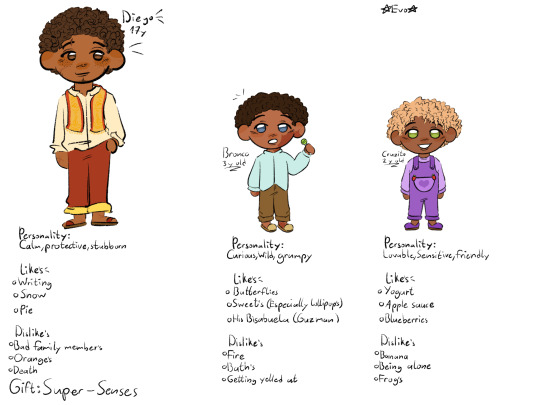
Diego was the oldest and first one Dolores adopted. (Besides Camilo and Mirabel) His father didn't treat him well, he made Diego work a lot. His uncle‘s side of the family wasn’t good either, they too treated him badly. Diego was confused most of the time, yet he was also angry. Sometimes his father would kick him out and then take him back in, but one day when Diego was 9 he ran away, he didnt wanna work anymore, he didnt wanna get hurt or bad-mouthed anymore. Dolores found him in the forest and took him in, he looked up to her a lot since that day. Now he is rested, no more work and no more bad words, plus he loves being a big brother.
Bronco‘s parents only used him and his sister for good reputation. They didn‘t want children but they saw how much people with children get praised so they decided to have 2 children for good reputation only. When they weren’t getting praised they were left alone unattended somewhere, Dolores always has to go to their garden so they won't hurt themselves accidentally. When Bronco was 2 he set the house on fire without knowing, the house burned down but Dolores still got him and his sister out in time. His parents didn’t survive, but bronco didn't care that much since he didn't even really know them. Dolores adopted them and he felt happier to be with her than his parents.
Cruzito‘s parents didn't want him, they noticed how Dolores adopted many children, so they asked Dolores to take him. She was upset how they did not want their own child but she didn't refuse. Dolores adopted cruzito, he grew up happily in a big family with lots of love and spoilering.

Almira’s parents used her for a good reputation like bronco. She didn't like seeing so many bad face‘s, some were making her upset. She didn't like going to the same places and would just end up crying. One day her brother set the house on fire, Dolores saved her but she was really traumatized by it, she cried every time she was put down by Dolores because of the thought of being hurt again, after some time though she felt safe enough to be on the floor and even start to walk herself. Mostly though she likes being picked up rather than walking.
Angela‘s and Amalia's parents weren’t bad people, well at least not their mother. Their mother was good friends with Dolores, but she knew that she couldn’t handle twins at birth since it was risky for her age. She made a promise with Dolores that if she died she wanted her to take care of the twins. And sadly she did die after the birth, Dolores was devastated but kept her promise. Their father divorced their mother when he found out about the pregnancy, he didn't want children and so he left. Dolores makes sure they grow up to be loved.
Victorio is Olivia’s little brother, since birth he has been abused, his parents were nothing but just aggressive towards him. Thankfully he is a calm child most of the time. He is happily now in Dolores’s care, without getting hurt for the rest of his life.

Now we're onto Dolores!! She started to notice Mirabel was neglected by the whole family, even by her own mother. She hated hearing the cries she heard from mirabel after the ceremony, no one also went to comfort her so she took the matters into her own hand and started to take care of her, it wasn’t a long time till she started to take care of Camilo too. After some time she heard a child in the forest, all alone and she couldn’t just leave him there so she took him in. Since that day she started to take more and more care of the children that needed care. But who would take care of Dolores? Well at the time she found that child in the forest she also met a woman in the age of her mother, she built a bond with the woman and started to see her as a mother figure, pepa lost her spark with Dolores a long time ago, since she was 5. She also met her beloved husband through the kids, everything is great…till it isn’t.
Mariano grew up with no parents, his father is unknown and his mother died at birth. His grandma took care of him and he made a promise to never be like his father. He grew up pretty well behaved, he made sure to treat everyone kindly. He started to get a crush on his best friend, Dolores after a while. He has known her since childhood and he also knows that she helps the people in need. He wanted to be by her side, helping the ones in need, but he also wanted to help her too. After a confession, they started to date and then he proposed, they got married and Mariano couldn’t be happier. He loves his family and what he has become. He would never change it the way it is.
Elena Rosa, the grandmother of Mariano had a normal life, she grew up like any other kid, maybe sometimes her life got down, like that time she lost her husband in the escape. She gave birth to a little girl, who later on also died on her grandson‘s birth. She was devastated but she swore to raise him in the way she would’ve. She hates her daughter's husband for abandoning her during the pregnancy. Elena loves Dolores and her family a lot too. She knew that Dolores was just perfect for Mariano, plus she also loves to spoil her great grandchildren. They are everything for her.
Fiona grew up poorly, her family wasn’t the best, so she made sure to cut them out if she ever got married. Which she did, but after he found out that she couldn’t get children he left her and 6 years of her life went to waste on him. She was alone after that, till Dolores came to her life. She treated Dolores like a daughter she couldn’t have before. And in the process Fiona also got a son-in-law plus grandchildren!! She loves spoiling Dolores and her grandchildren, she made sure to make sure they won’t get the same treatment she got. She’s very protective of her family, she will hurt anyone who even dares to looks at them the wrong way.
\\\\\\\\\\\\\\\\\
Y’all best believe I spend a lot of time of this 😭 I also needed to rewrite most of their lores since tumblr decided to be a pain in the ass 😞 Fiona is just a character I wanted to add since Dolores deserves a mother figure in this au 🥲👍 I really love and enjoy this au a lot!! I think in the future I will start to write too :D!! If any of y’all got something to say or ask so about this au I be very glad to answer or hear about it!!
Also, the children live in a second casita alike house, just that this house is like a magical room. In Dolores’s room, Guzman‘s house and Fiona‘s house is a door connected to casita 2.0. The room is ofc huge, and everyone who chooses to have an own bedroom has one, some share one cuz they don’t like being alone. They have a garden, multiple bathrooms, and everything they need. Since technically the room isn’t connected to the candle like casita is, it still will be there after casita‘s fall!! Just that Dolores room door won’t work anymore till they rebuild casita. 🩵
#encanto#dolores madrigal#my art#encanto fanart#encanto au#camilo madrigal#mirabel madrigal#antonio madrigal#la madre silenciosa au#encanto oc#mariano guzman#Elena rosa Guzman#ask me anything#they are my roman empire#they’re just babies ☹️#original characters?#casita is the best🙌#dolores x mariano
26 notes
·
View notes
Text
Dolores' Bio

"Others kill for survival, why does it make a difference when I do the same?"
More details on Dolores is under the cut
Name: Dolores Vandaken
Age: 222
Height: 163 cm
Birthday: 17 Tierna 1800 (Da'asja)
Orientation: Cisgender Bisexual Female
Pronouns: She/Her
Species: Dryad
Country of Birth: Labuhinera
Likes: Rainy days, drama (especially if everyone's a trainwreck), bisque, cup noodles
Dislikes: Most dryads, hypocritical behaviour, the word 'curse', cucumbers
Hobbies: Paintball, reading, making bookmarks (especially pressed leaf ones)
Personality: Unafraid to do what's necessary for survival, she's perfectly willing to kill in order to sustain her life force without binding herself to flora. Some consider her fucked up for her love of watching drama unfurl (the more fucked up the drama, the happier she is), but she insists that she's never the one starting it as even she has a moral code, implying that she's rule-abiding to some extent...
Style: Military inspired fashion along with a ball chain necklace with her wedding ring strung along it
Abilities: Able to absorb other beings life force to prolong her own lifespan, with the years added to her lifespan equivalent to the number of years she absorbed. Also able to purify toxic liquids at the cost of her lifespan, and knows how to use guns and knives proficiently
Background: Born in the outskirts of Labuhinera's forests, the dryads ensured that Dolores knew that she was different from the regular dryads and barely tolerated her presence, citing that she was cursed. Per the instructions of the dryad leaders, she had to wear a pair of gloves at all times and wasn't permitted to remove them regardless of the reason else she would die. Believing the words of her community, Dolores accepted the harsh treatment from her fellow dryads without complaint. After decades of mistreatment, she decided to sneak away from her community when she turned 68 despite being told that no one would accept her
While this was true, the elves and human immigrants tolerated her more than her fellow dryads or the human Haricawan descendants. At 90 years old, the human immigrants had taught her how to use guns after she made an offhand comment about how she wished that her fellow dryads could have treated her marginally better. One of the immigrants then asked if it was true that albino dryads could really kill via their hands. Dolores, bewildered by the question, asked why had the immigrant asked such a specific question. She went on to ask what was albinism, which surprised the immigrants as they had assumed that Dolores knew what she was. They proceeded to explain that albinism in beings varied, but from the rumours they heard about dryads, said species had white hair, extremely pale skin and greyish-white eyes. The first immigrant also added that albino dryads apparently had their markings on their left instead of their right, asking Dolores if she had never once thought about the physical differences between her and the rest of the dryads
Dolores then asked if there was a way to cure albinism, with the immigrants replying that it wasn't life-threatening, merely a difference from birth. The immigrants reassured her that from what they had heard, albino dryads didn't have to worry about being stuck in one place forever which only served to confuse Dolores. Wanting answers, she went directly to the dryads and confronted them about the new information. Seeing that there wasn't a way around it, the dryad leaders confessed that Dolores wasn't actually cursed but they made her believe so as to quell the worries amongst the community. They insisted that the ability to kill via touch was false, and the real reason that they made her cover up her hands is to quell the belief that she can make others albinos, something that they themselves knew was unfounded but the regular dryads refuse to believe
Dolores, not believing their words, declared that if what they said was true, then they wouldn't mind becoming albinos themselves. Alarmed, the leaders tried to calm her down but failed. Dolores removed her left glove and lunged for one of them, successfully draining them of life energy. While doing so, she felt rejuvenated and realised that the immigrants had been telling her the truth. The leaders, understanding that Dolores meant business, tried making a deal with her in an effort to spare their lives but fell in vain as Dolores decided to make their lives her own as compensation for the past nine decades of mistreatment
Not caring about the state of the community, she left and decided to live amongst the human immigrants. She was thrilled to hear about the Labuhineran dryads panicking, with the immigrants commenting that they were glad that Dolores had found herself. On 26 Alstas 1900, she had an encounter with Youko, soon learning that her pendant was broken and she urgently had to return to Asanoku in order to get it fixed but her ship refused to set sail due to the storm. Upon asking Youko why was it so important that she had to get her pendant fixed, the amehito explained that if she couldn't get the pendant fixed, Labuhinera would be subjected to a permanent rainstorm unless she was killed, which was extremely hard to do and she had no intentions of dying
Realising that permanent rain would be bad for Labuhinera, Dolores decided to bring Youko to Asanoku by borrowing a ship despite the sailors' warnings. Touched by the gesture, Youko admitted that she could've actually gone to Asanoku given her abilities but didn't want to as she didn't want to be reminded that she was cursed. Resentful of the term, Dolores maintained that she would still bring Youko to Asanoku on the rowboat if it meant keeping the storm at bay. Dolores then dragged the amehito on board and started to sail out of Labuhinera, with the latter deciding to make Dolores' life much safer by using her abilities to propel the ship towards Asanoku. Upon seeing this, Dolores asked why were her abilities sans the rainstorm seen as a curse, with Youko explaining that she had gotten them after her entire village sacrificed themselves in a ritual to bring about rain during the Great Asanokian Drought lasting from 1763 to 1765
Remarking that Youko had gotten others killed due to her abilities, she said that they were curses rather than blessings. Dolores decided to cheer her up by sharing that she had deliberately killed the dryad leaders with her abilities, and that she didn't regret it especially since she was treated badly. Youko offered her a faint smile in response, showing appreciation at the dryad's attempt to make her feel better
Upon arriving in South Asanoku on 15 Dia'ae 1900, Youko said that she needed to climb up a mountain in North Asanoku in order to reach the tengus that could fix her pendant and that Dolores probably should stay hidden due to Asanoku's xenophobia. Heeding Youko's advice, she decided to stay hidden until 13 days later, the announcement that Chiaki would be executed on 27 Itis 1900 was delivered throughout the country. Curious to why all the human Asanokians were cheering, Dolores decided to pay a visit to said prisoner. Though she was allowed to see Chiaki, Dolores was left irritated at the xenophobia displayed towards her simply because of her ears, making her slightly grateful that Labuhinera didn't discriminate over them
On 6 Itis, she was surprised to see a humanoid with no distinctive features heavily chained inside a small cage, expecting Chiaki to appear less human. The latter asked who Dolores was as she clearly had no memory of ever meeting a dryad, with Dolores explaining that she was a visitor who decided to find out why the humans were overjoyed at her impending execution. Chiaki then explained that she had killed countless of humans in the past to avenge Akio and her family, and would certainly do so again if it meant making herself feel better that there was lesser humanity in Ratein. Dolores nodded and said that they were similar, explaining that she herself would've done the same to the rest of the dryads that ostracised her had it not been for the fact that she found their panic much more delightful than the act of killing. Chiaki said nothing, carefully listening to Dolores' words and pointing out that the dryad was more likely to kill for survival purposes, while Chiaki herself killed for pleasure at that point
Nonetheless, the fox spirit advised Dolores to not kill for revenge, saying that based on her personal experience, it would eventually blur the lines between revenge and pleasure. The dryad then asked if Chiaki had regrets taking revenge, the latter replying that she didn't regret taking revenge, but a small part of her regretted her failure to reflect much more critically when carrying out her killings. Chiaki also advised her to be careful when using survival as a reason to kill, as the lines between survival and pleasure can just as easily be blurred. Before Dolores left, she asked the fox spirit if she escaped, would she ever try to return to Asanoku. Chiaki responded that pragmatically, no as she would most certainly be seen as a fugitive and arrested on sight. She then answered that if it was based on sentimentality, she would as no matter how much she had suffered, Asanoku was still her home and all her memories were found in it
Once she had left the prison, Dolores decided to find Youko. After asking several non-humans for directions to North Asanoku, a ryeuong decided to bring her up to the mountains to search for Youko. Eventually on 18 Itis, she found the amehito at the Ōtoris where she had just received the repaired pendant as well as a warning to not damage it again as they would be unable to repair it the next time. Youko then asked Dolores what had she been doing while she was away, the latter answering that she had visited a popular figure amongst the humans. Youko was taken aback and asked how Dolores knew about Chiaki, who then explained that there was an announcement that she would be executed in nine days. Dolores then asked if it was possible to attend the execution, with Youko affirming that it was possible but she didn't take the dryad to be the type to enjoy violence. Dolores smiled and said that she wasn't interested in the execution itself, she was interested in the events that would happen during the execution
Confused, Youko said nothing and made their way back to South Asanoku, arriving on the day of Chiaki's execution. As crowds gathered to watch the execution, the duo had to climb up houses in order to get a better view. Dolores then asked Youko which country neighboured Asanoku, the latter answering depending on which part of Asanoku, Syeoang, Xhing'Tien, Koho'e and Porto'ok neighboured the country. Youko added that she had always wanted to visit Xhing'Tien along with a few other countries, to which Dolores nodded thoughtfully. Before the executioner could swing down their blade, Chiaki broke out of her chains and transformed into her true form, killing all the executioners present as well as several humans in the crowd. Dolores then grabbed Youko's hand and ran towards where they had docked their ship, excitedly explaining that if they were lucky, they could continue spending time together instead of parting ways. Youko was horrified upon realising what Dolores had planned, yet said nothing to stop the dryad as they prepared to sail off
As if on cue, Chiaki appeared at the harbour and Dolores waved to the fox spirit, helping her on board and sailed towards Xhing'Tien. Once safely out of Asanokian territory, Chiaki took note of Youko's presence and asked why was a human helping Asanokian's most wanted, with the amehito replying that she was partially forced into it. Dolores grinned and informed Chiaki that not all humans were so bad, especially those who are different from other humans. Chiaki mused over her words, agreeing that as hypocritical humans were, humans had the capacity to be kind. Youko then corrected Dolores that she wasn't considered human anymore, with Chiaki indicating that to her, Youko was very much still human and she was born a human anyways
Upon arrival in Xhing'Tien, Chiaki mentioned that she hoped both of them lived long enough to meet again before disappearing into the forest. The duo then explored West Xhing'Tien, fulfilling Youko's desire to visit the country before leaving on 20 Primna 1900. They then visited Koho'e as Youko had heard that the Ixsa'an Archivist is willing to lend out the archived books in exchange for a good story, something which the dryad insisted that it was a scam but the amehito said that there was no harm in trying. Arriving at Ixsa'an Archive on 9 Secuna, they quickly found A-Mao lazily guarding the archive and it told them that they could either go through the legal procedure, bribe it with money or a good story. Youko decided to tell it a story, which engaged A-Mao but failed its standards of 'good'
Dolores decided to go next, and told the story about how she killed the dryad leaders by using analogies. Again, A-Mao was entertained but said it still wasn't enough to pass. Dolores, realising that A-Mao would've never allowed anyone to borrow books via the story method, decided to threaten it via the story, narrating that at the very end, a book-loving cat pushed its luck too far and ended up dead at the roots of the soul sucking tree, all while removing her gloves and her ungloved hands hovered dangerously near A-Mao
Laughing, A-Mao said that while it could very well reverse its clearly bad fortune with its abilities, no one had ever threatened it in such an entertaining manner and decided to let them borrow a book each. Youko decided to borrow the archive's copy on Hannzein's elven history, while Dolores decided to borrow the copy on how arcane magic worked and its history. The dryad then asked why these copies weren't sold in bookstores, with the kishuko commenting that for the Hannzein book, the archives wanted to preserve the course of history and it was recently found out that what Ratein knew about Hannzeiner elves prior to the First Hannzein War was inaccurate. As for the magic book, Ilias didn't want the wrong beings to learn how a dangerous type of magic worked
A-Mao then added that they could hold onto the book for a month and they weren't permitted to bring it out of Koho'e. When Dolores asked what was stopping them from copying the text in the books, the kishuko explained that all archive materials were enchanted such that if a page was open for too long, the book would slam shut and be locked until it was returned. A-Mao also said that if that happened, the borrower's details, blood as well as their personal seal was recorded down so that all archives can blacklist said borrower, a process that A-Mao found it tedious and hoped to avoid. Before they could check out the books, A-Mao said that it had to get their details, blood and seal. Youko had no trouble, while Dolores grumbled and returned the book to A-Mao, citing that she didn't have a seal and had no idea that was a thing
A-Mao laughed and said that as a favour, it would hold the book for the dryad until she could complete the details. Dolores agreed and a month later, Youko returned the book before they visited Porto'ok. On their way there, Dolores asked Youko how to obtain a personal seal, the amehito then explaining that one had to obtain it in their birth country. Youko then said that they should return to Labuhinera soon so that Dolores could get her personal seal, something which surprised her as the dryad never expected the amehito to word it in such a way that they'll still be together. Upon arriving in Porto'ok on 28 Tierna 1900, they decided to visit a family restaurant where they encountered Radio panicking over one of the owners, who was about to give birth. Taking charge, Dolores managed to lead the beings present into helping the owner deliver the child safely. As a result, both Dolores and Youko received a decorated bookmark made out of tree resin each that the owner's husband had made to signify that they were entitled to free meals at their restaurant for life
Three months after the ordeal, Dolores and Youko returned to Labuhinera where almost nothing had changed except that the dryads had elected new leaders to lead them, much to Dolores' disappointment. With Youko deciding to stay in Labuhinera alongside Dolores, they decided to marry and Dolores decided to run a bookstore after taking Chiaki's advice about revenge to heart. As years passed, she could feel herself steadily growing weaker, which made her wonder if it was due to her refusal to be bound to flora like the regular dryads
In Tivere 1950, she had encountered Victoria, who was getting bullied by Haricawan descendants. Before she could intervene, she watched as the child defended herself with martial arts, sending the bullies scurrying away. Impressed but worried that Victoria could only defend herself in close range, Dolores decided to approach Victoria and offer her shooting lessons to better defend herself. During lessons, she had learnt that Victoria was a Portokian immigrant and her mother had taught her how to fight. She also mentioned that the sailors were teaching her how to make explosives, which concerned Dolores as she didn't want Victoria to get arrested
In 1956, news of a minority being sentenced to death over the manslaughter of a Haricawan descendant was published in the national newspaper. As a result, there was an outrage amongst the majority and crackdowns on the minorities were called, marking the start of the Labuhineran Conflict
Initially, the minorities held peaceful protests and called for equal rights for those who didn't live in Labuhinera prior to the separation. However, things took a turn for a worse when a few citizens from the majority community attacked the protest group, forcing them to use violence to defend themselves. This worsened the reputation of the minorities and discrimination towards them became rampant, with their homes being set ablaze in retaliation for the violence directed towards the majority community
The matter was made worse when Haricawa expressed support towards the majority while calling for an end to the rioting in the country. The minorities was then split into two factions, the LFA faction who wanted a Labuhinera that was completely devoid of Haricawan influence, and the UEF faction who wanted a Labuhinera where everyone was equal, regardless of species or ancestry. Dolores, who wanted to be be seen as an equal, joined the UEF faction despite disagreeing with said faction's peaceful protests
However, due to the majority viewing the minority as a combined group regardless of their beliefs, violently engaged with them. This forced the UEF faction to engage in riots, albeit milder than the LFA faction. Even so, the faction eventually armed themselves with rifles and bayonets that they had found hidden in a chest near an abandoned military base, marking the start of their violent methods
In 1959, she, Youko and a few other UEF faction members were scouting the forest that the majority were said to have a base in. Dolores commented that it was unusual for the dryads to offer shelter to non-dryads no matter the circumstances, but the other members insisted that their intel indicated as such. Before Dolores could argue back, Youko immediately informed them to stop and pointed to a group of humans mingling with a dryad leader and a few elves. There, they could make out that out of the 13 UEF members who was sent out to scout their base area, 12 were killed while the remaining disappeared into a bright light. Before they could do anything, the roots of the trees surrounding Dolores' group ensnared them, bringing them into view
Dolores then questioned the dryad leader to why they involved themselves in the conflict, with the leader responding that the dryads opposed the LFA's beliefs, citing that the immigrants didn't see the importance of dryads in Labuhinera and would find ways to hunt them down. She proceeded to explain that as for the UEF's beliefs, the dryads didn't like the idea of being seen as equal to humans, believing that humans were pests towards Ratein's flora and that dryads, who were likened to guardians of Ratein's environment, were far superior than mere pests. The leader added that while the dryads would prefer to not side with anyone, the majority offered them a status-quo and respect that they found palatable
Angered by the dryads' apparent superiority complex, Dolores absorbed the lifespan of the tree that ensnared her and once freed, apologised to Youko before crushing her pendants into tiny pieces which in turn, summoned a terrifying rainstorm that flooded the forest and struck down numerous trees. Dolores then commanded the UEF faction members to head back to base while tossing her gloves into the storm, absorbing the life forces of every living being she touched. She then proceeded to enter the dryads' territory and wiped out all but one, with Youko yelling at her to follow her back to base before she drowned herself. Before she could leave, the dryad managed to stab Dolores' left hand with a knife. Deciding to leave before the flood made escape impossible, Dolores spared the dryad and fled
Back at base, the members discussed the best course of action now that they had to fight in wet weather. Dolores then suggested that they redirect the flooded areas to where the Labuhineran majority lived, with Youko being against it as it was far too evil even by majority's standards. Eventually, they managed to form an agreement with the LFA faction and fought against the majority for five years until Victoria returned with James, who managed to stop the rainstorm much to everyone's surprise
With Victoria's abilities as a chronoven, the united minority was able to turn the tables against the majority. On 9 Itis 1965, the majority surrendered and the parties involved all agreed to work towards a Labuhinera where everyone was equal. Afterwards, Youko said that she would probably have to find a way to live in the ocean as she didn't expect James to continuously suppress her rain summoning ability, with Dolores apologising fervently for breaking her pendant. James then offered to bring Youko to Ilias, who could possibly work out a solution to help her. Victoria then asked if Dolores was going to continue staying in Labuhinera, the latter saying that she probably shouldn't after killing every dryad in the country
Her decision confirmed, she decided to set sail for Koho'e while Youko headed to Wulfenz on board James' ship. At the Ixsa'an Archive, she borrowed the book that A-Mao promised to reserve for her and after studying it, she discovered that beings could use arcane magic most effectively if the symbols were present on their skin. She then got the symbols she wanted tattoos of photographed at a photography studio and brought them with her to a tattoo parlour where she informed the tattoo artist to tattoo one of each on her palms. When asked for a preference, Dolores informed them that she wanted the fire arcane symbol tattooed on her left palm, and the lightning on her right
Once a month was up, Dolores returned the book to A-Mao and asked if it wanted to see the fruits of her training with regards to arcane magic. A-Mao shook its head, not wanting the archive to be burnt down and told her to show off somewhere else. It then proceeded to make a call, with Alexia appearing seconds later with the offer to bring Dolores to where Youko was. Afraid to find out if Youko wanted to end their marriage over the pendant, the dryad refused but was whacked inside the portal Alexia had opened up by A-Mao, saying that she should just get over it
At Hallowed Hotel, Dolores met Youko and Ilias, who was working out a schematic with Daedir and Hayato. Youko happily informed Dolores that a newer and sturdier pendant could be crafted, and that they should buy a cake from the hotel's patisserie to celebrate Dolores' upcoming birthday. Dolores decided to not bring up their marriage status and agreed, while at the same time asking Ilias if she was using arcane magic right. On 30 Tierna 1955, the pendant was a success and the couple left the hotel. Dolores then asked Youko if she wanted to return to Asanoku, with the latter expressing interest in permanently residing in Dangrak much to Dolores' surprise
They arrived at Dangrak on 17 Unaiem, but Youko was met with much hostility for being seemingly human. Dolores threatened to kill them for treating her wife that way, with the amehito reassuring her and demonstrating her abilities to prove that she wasn't entirely human. Nonetheless, she threatened to submerge Dangrak underwater if they refused to change their ways, a threat that didn't settle well with the locals but still heeded
Wanting to get a job, she sought out numerous job openings but never got hired. One of the initial Dangraki that threatened Youko approached her with the offer to join the Vitaufero Association, informing her that the contracts offered good pay. Interested, Dolores decided to visit said association per the Dangraki's recommendation and soon discovered that it was basically an international group of contract killers, except they also did body disposal to maintain the guide of convenient cleanup crew that specialise in removing dead bodies. Not against the idea of killing for money, she became a member of the association and quickly gained a reputation amongst the contract killers for being effective
In 2017, Dolores accepted a mysterious contract that gave her the coordinates to her payment once the hit was carried out. Dolores had no idea what the other party wanted, but knew better than to claim payment before the contract was completed. The instructions detailed her to carry out the hit via sniping at the target's heart at a specific time, from a specific location and on a specific day, with the contract reassuring her that whoever she shot was indeed the intended target and the contract ended once she saw a bright light 'eating' the target. Confused but yet again, not questioning the instructions, she went to Syeoang and prepared to carry out the hit to the letter
What she didn't expect was that Boris was the target, and though she didn't want to assassinate one of the most well-known contract killers within the association, she didn't want to find out the consequences of not following through. At the specific time detailed in the contract, Dolores shot Boris' heart and was shocked to see the necklace around his neck glowing, with his body fragmentalising as a bright light enveloped his body. Realising that this was what the contract meant, Dolores left the scene and went to the coordinates mentioned. At the coordinates, Mashe was waiting for her and expressed delight that Mashe could finally leave. Handing a box to Dolores, Mashe disappeared in the familiar portal that she was kicked into years ago
Upon opening the box, in it contained a letter from someone named Shin Ryu as well as the payment agreed upon. Reading the letter, Shin Ryu admitted that he was starting to grow tired of his existence yet wanted a reason to end his life. He went on to apologise in the letter and admitted that Boris didn't have to die, but Shin Ryu wanted the Zarovian to learn the meaning of life as his father didn't teach it to him and making Boris a chronoven was the easiest way to go about it. The letter also implored Dolores to never forget Chiaki's advice especially since she now kills for a living, scaring the dryad as she only told Youko about visiting Chiaki and the jailers present that day died during Chiaki's escape
Taking the box with her, she returned to Dangrak with the aim of asking her wife if she had any memory of Shin Ryu, all while looking over her shoulder after sensing multiple eyes watching her from afar...
5 notes
·
View notes
Photo

Para revivir, una muñeca sads. ¿Porque? por qué lo hice estando depre una noche . Igual está cute 😴💜 sdgj nunca les subí medio desnudos (? . . . . . . . . . . . . . . . . . . . . . . . . # otrodibujodecornuda #doll #dollphotography #sad #sadness #albine #digitalart #digitalpainting #digitaldrawing #illustration #dollcollection #artedigital #muñecas #muñeca #tristeza #sadfeeling #emo #emogirls #starlight #flechas #flechasamarillas #cupido #cupidochallenge #love #breaking #roto #dolor #purplehair #purpura #dollfie #cute https://www.instagram.com/p/CpN7z2EOkRk/?igshid=NGJjMDIxMWI=
#doll#dollphotography#sad#sadness#albine#digitalart#digitalpainting#digitaldrawing#illustration#dollcollection#artedigital#muñecas#muñeca#tristeza#sadfeeling#emo#emogirls#starlight#flechas#flechasamarillas#cupido#cupidochallenge#love#breaking#roto#dolor#purplehair#purpura#dollfie#cute
6 notes
·
View notes
Text
7. Abductions (pseudossier : le phénomène ovni)
À lire avant pour ne pas être trop perdu :
1. Petit historique - Partie 1
Pseudocomplément : l'affaire Roswell
2. Petit historique - Partie 2
3. Petit historique - Partie 3
4. Caractéristiques générales
5. Comportement et lieux d'intérêt
6. Troisième type
Pseudocomplément : le mystère Oummo
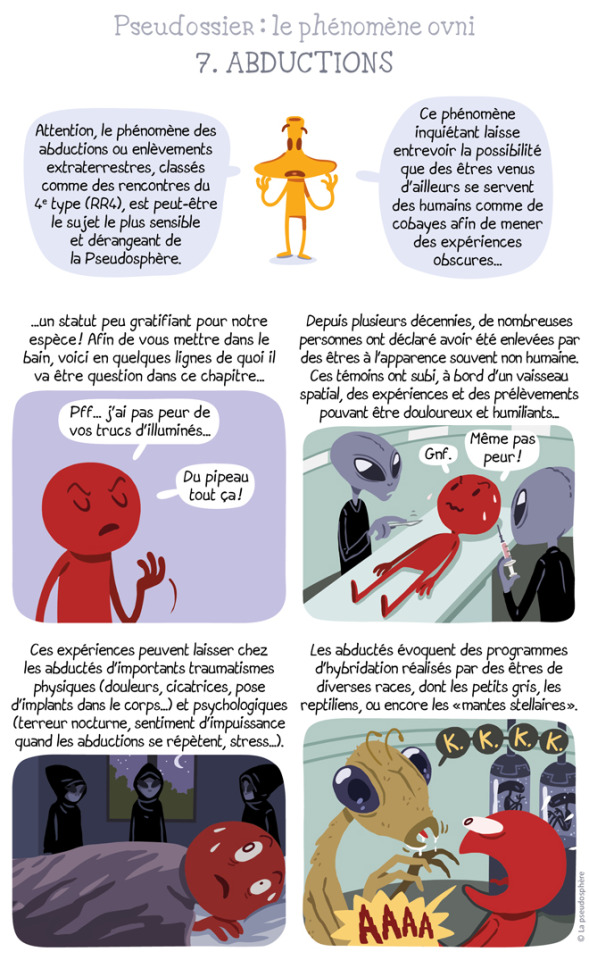
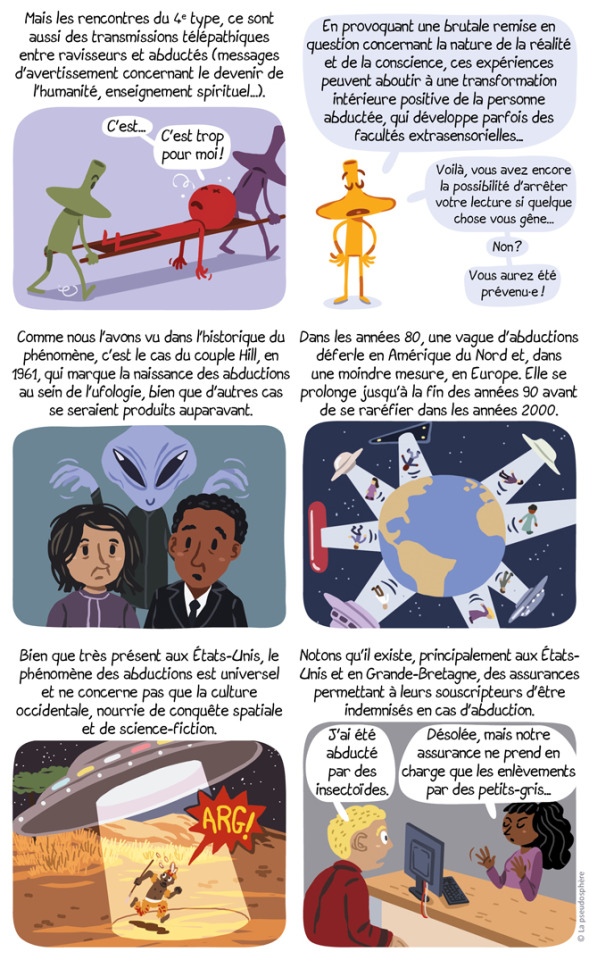
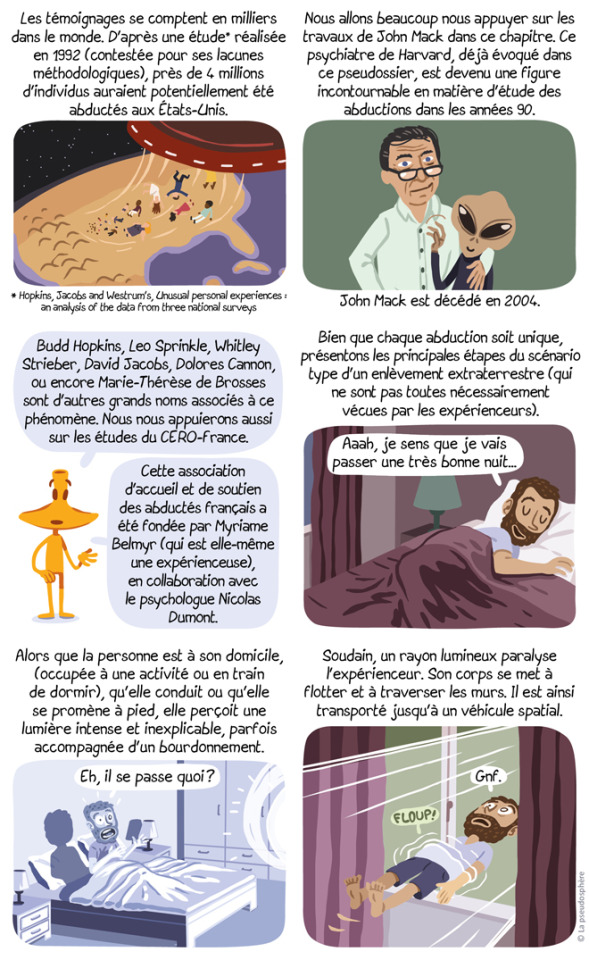
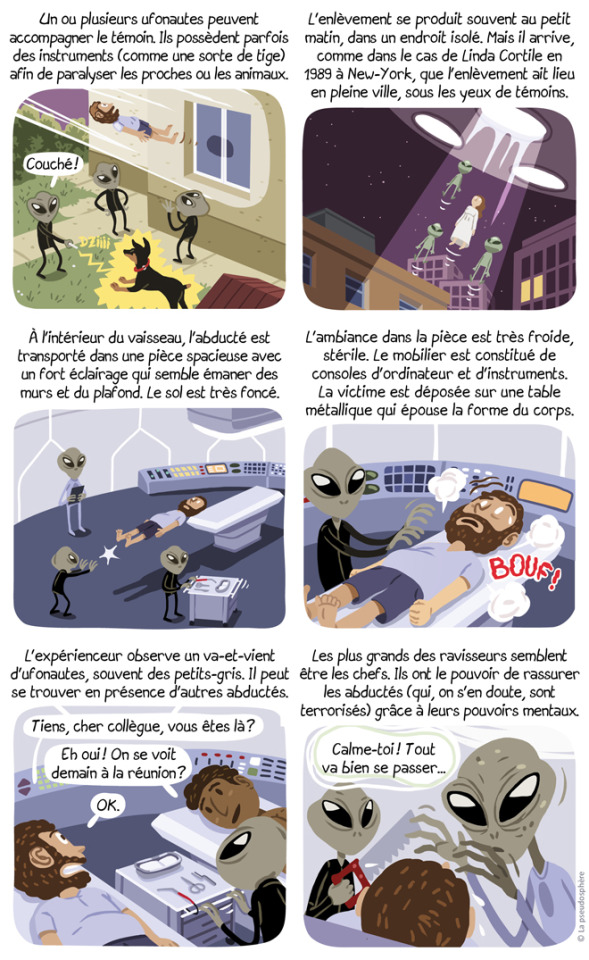
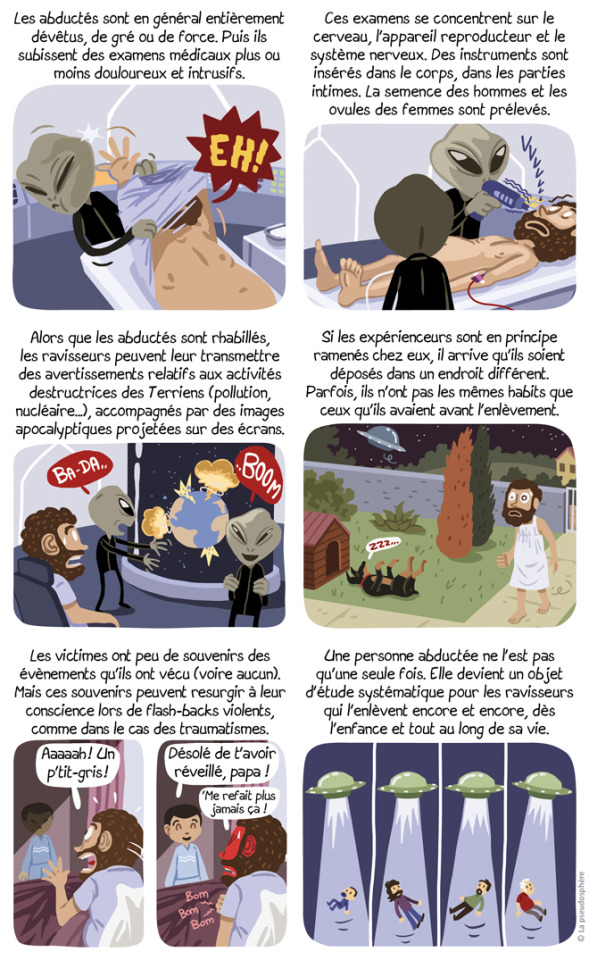
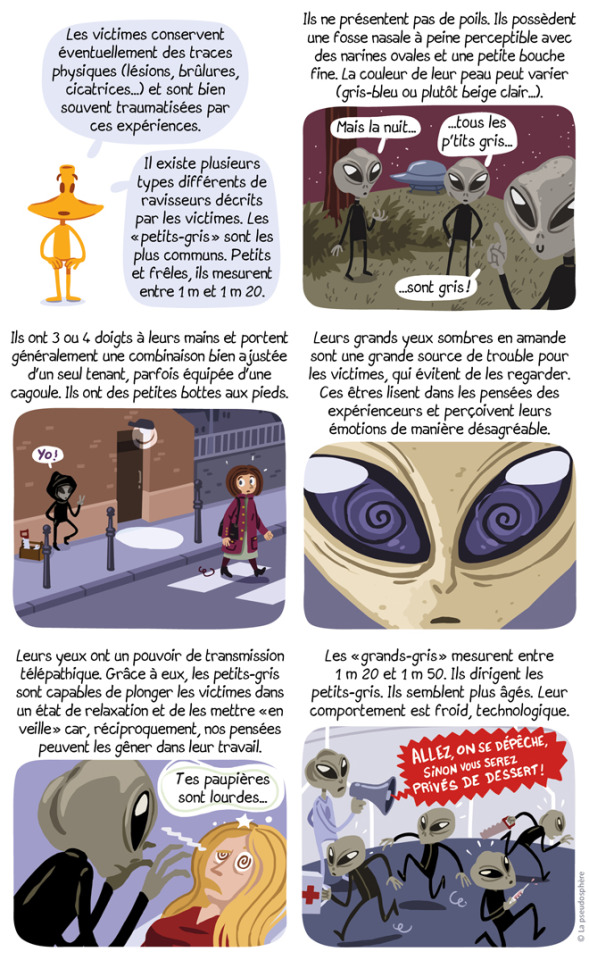
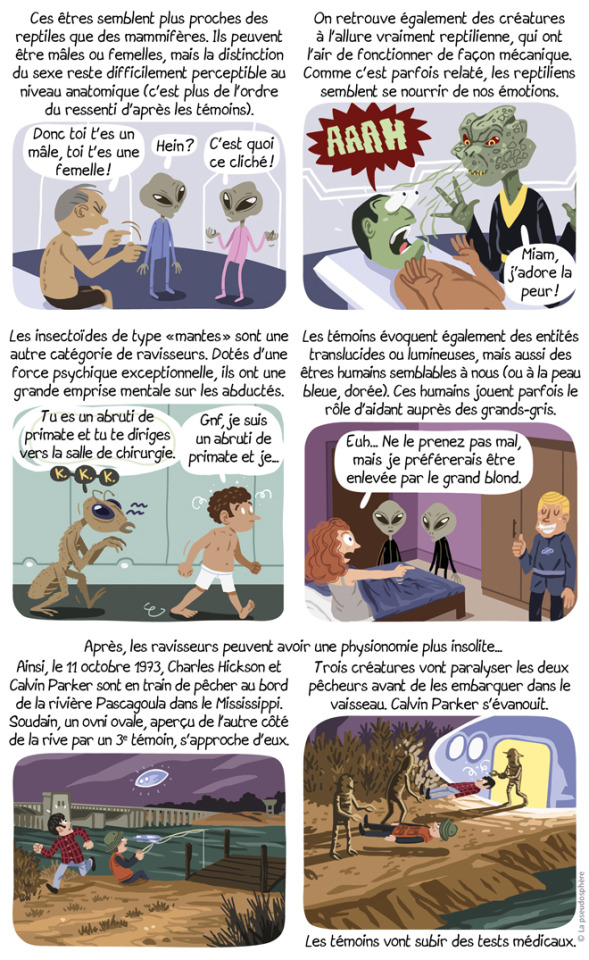
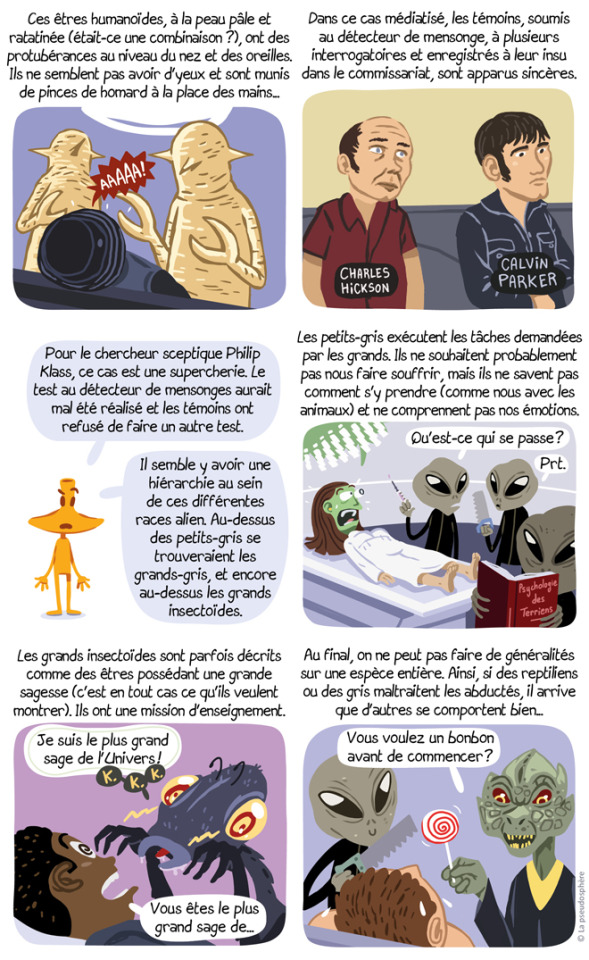
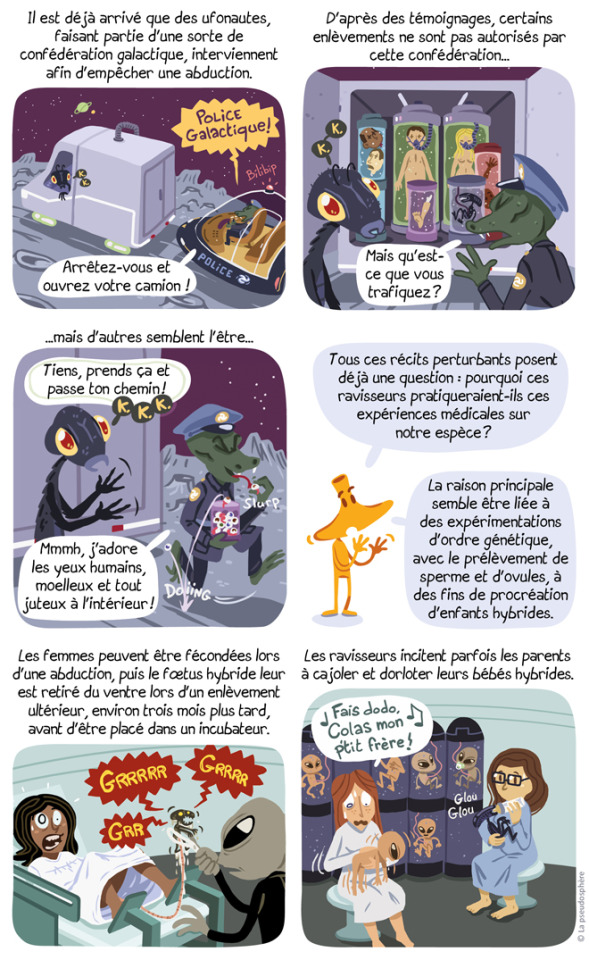
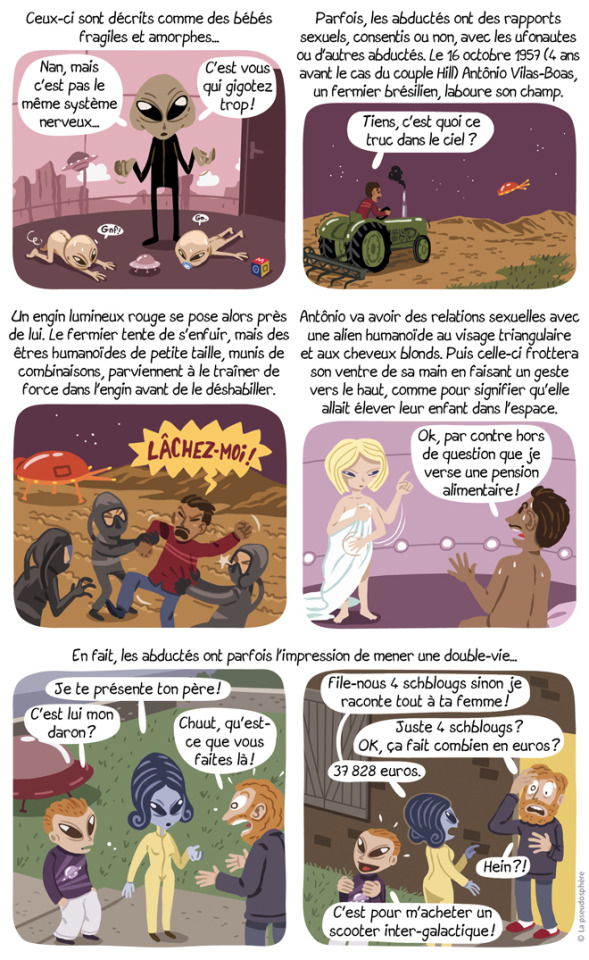
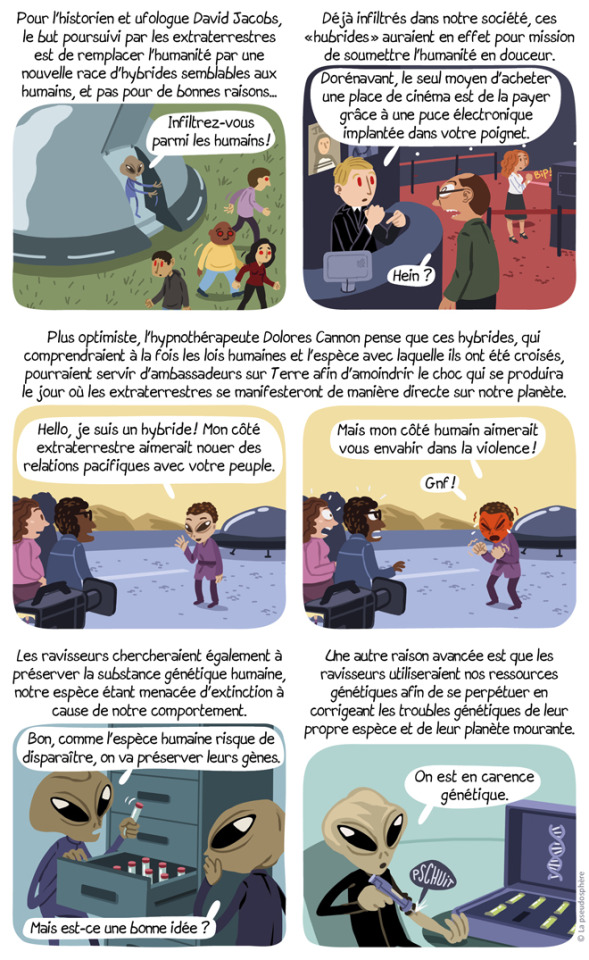
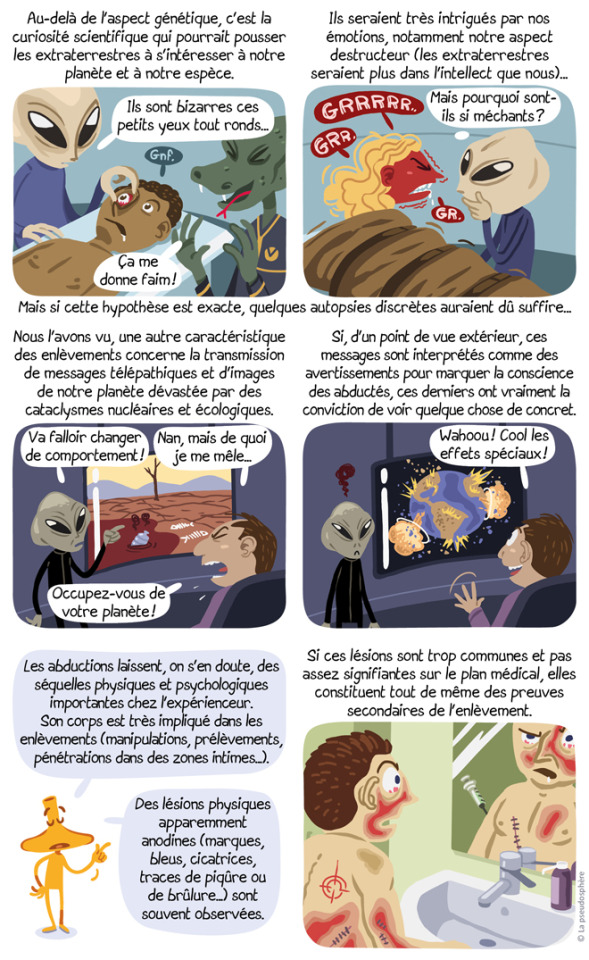
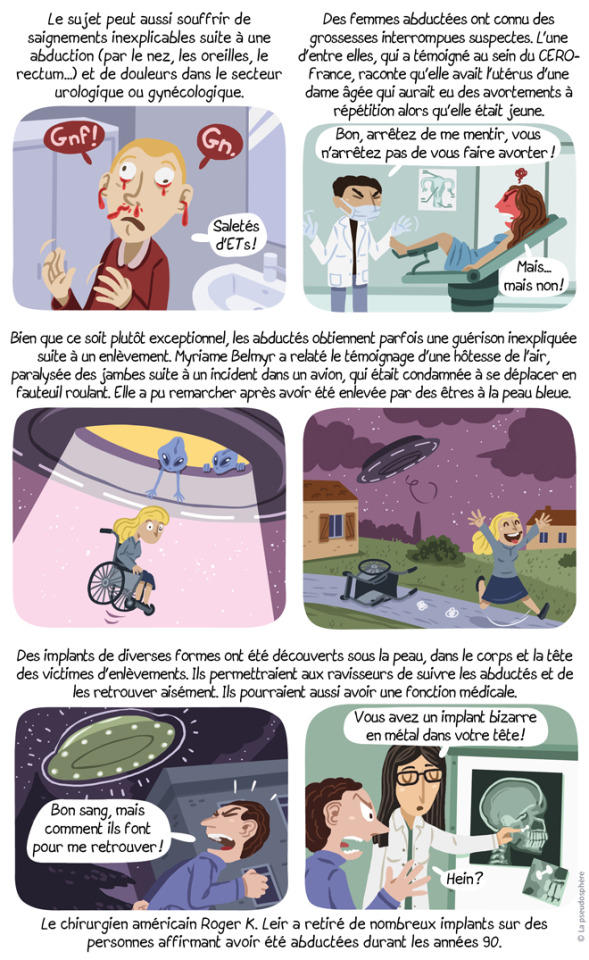
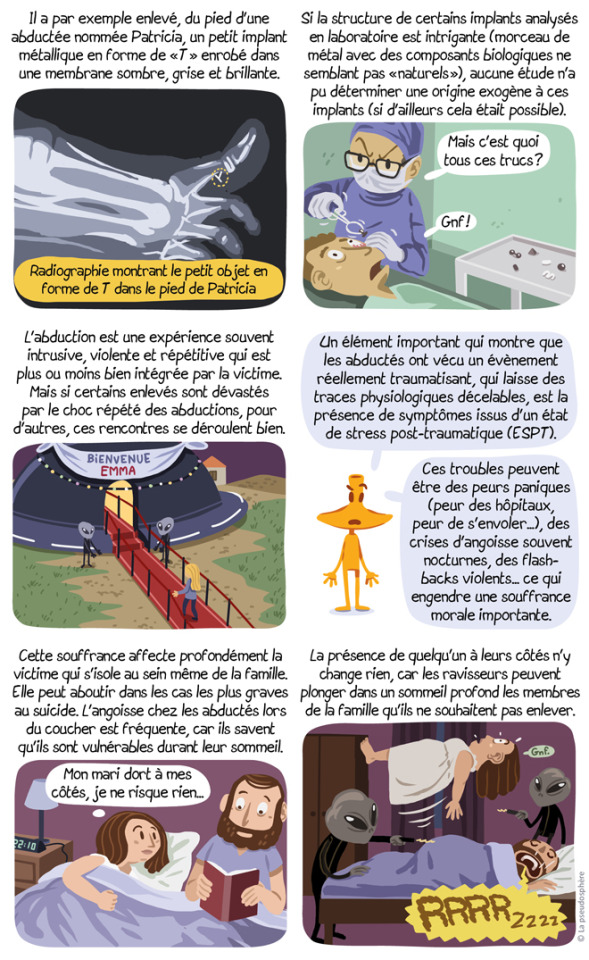
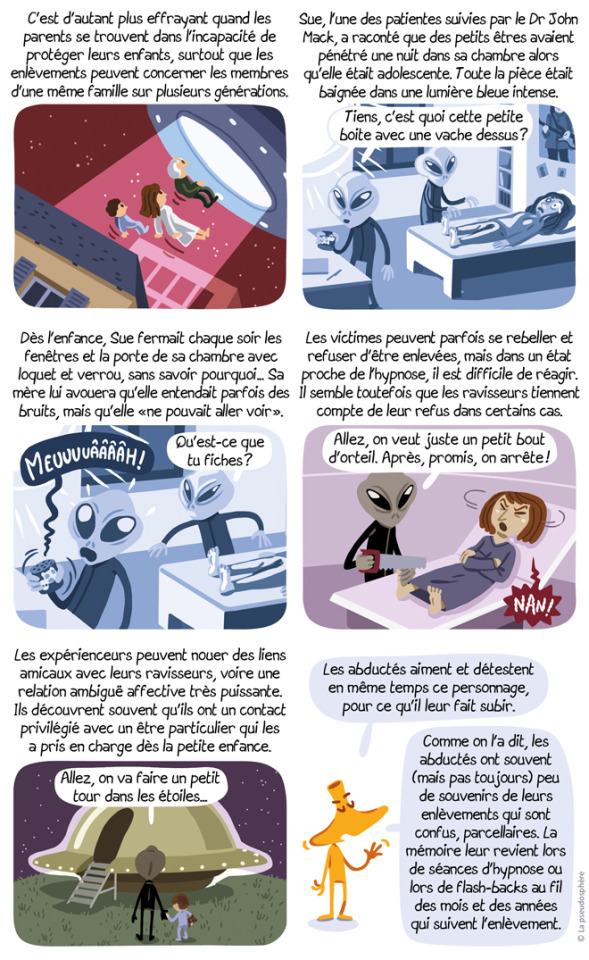
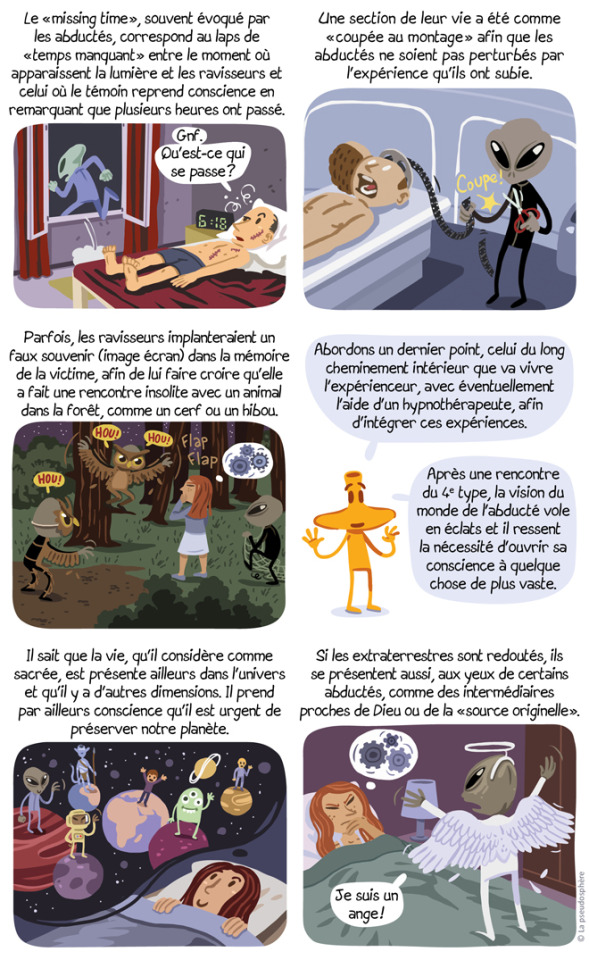
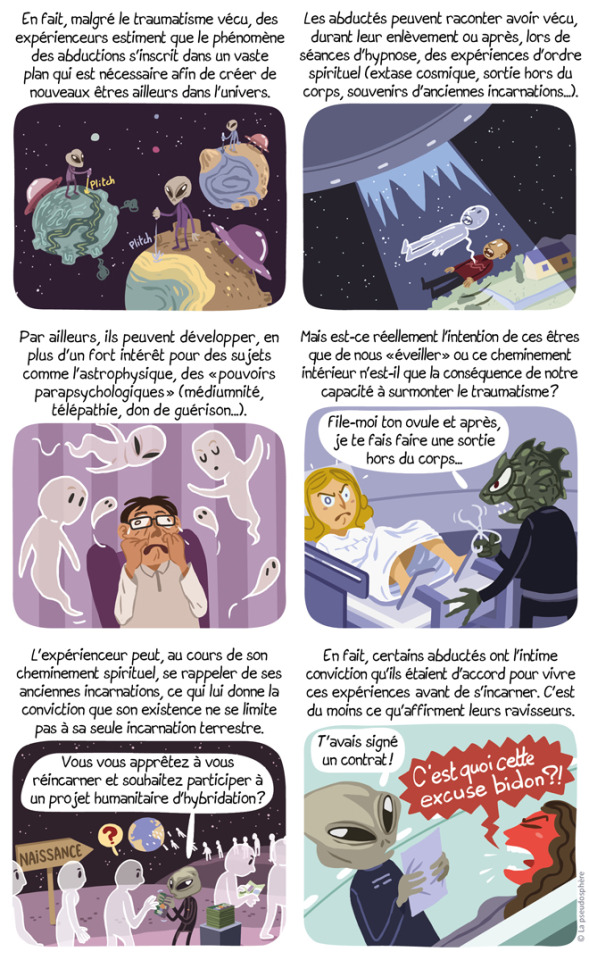
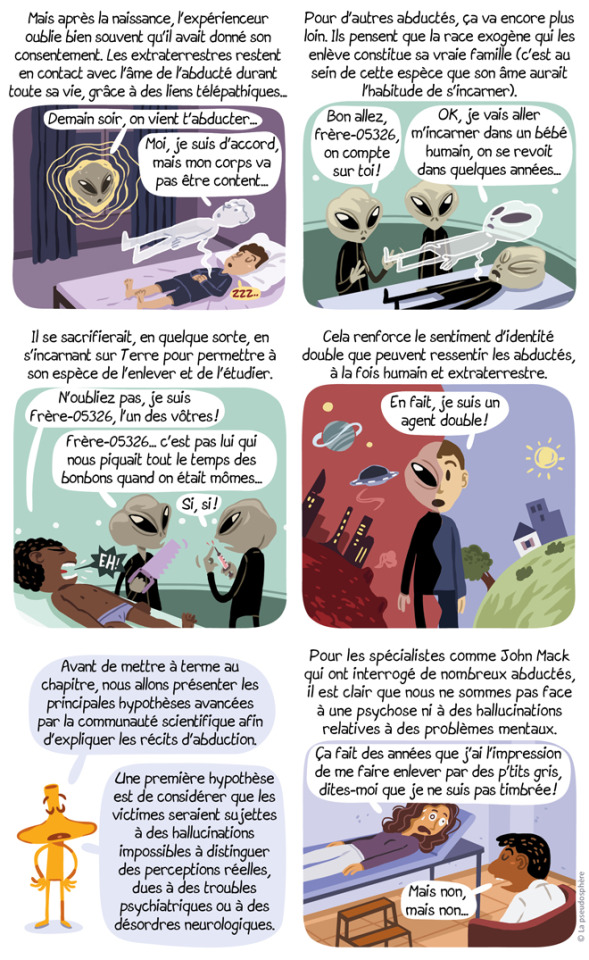
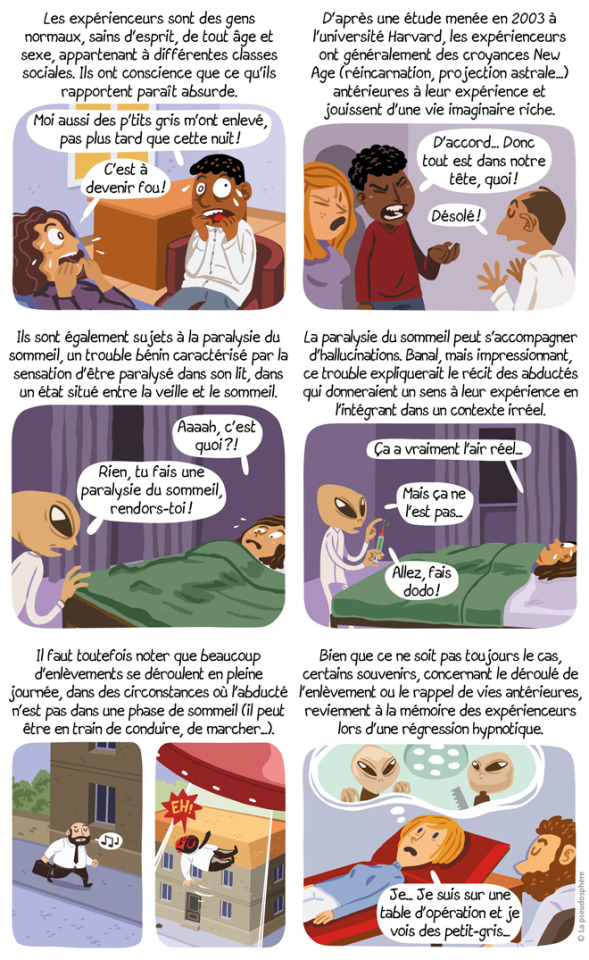
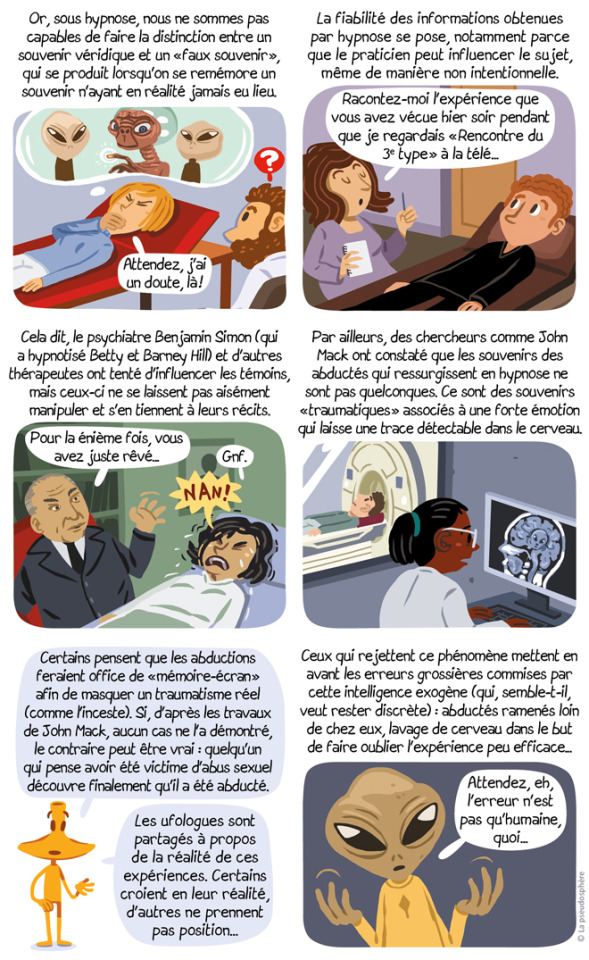
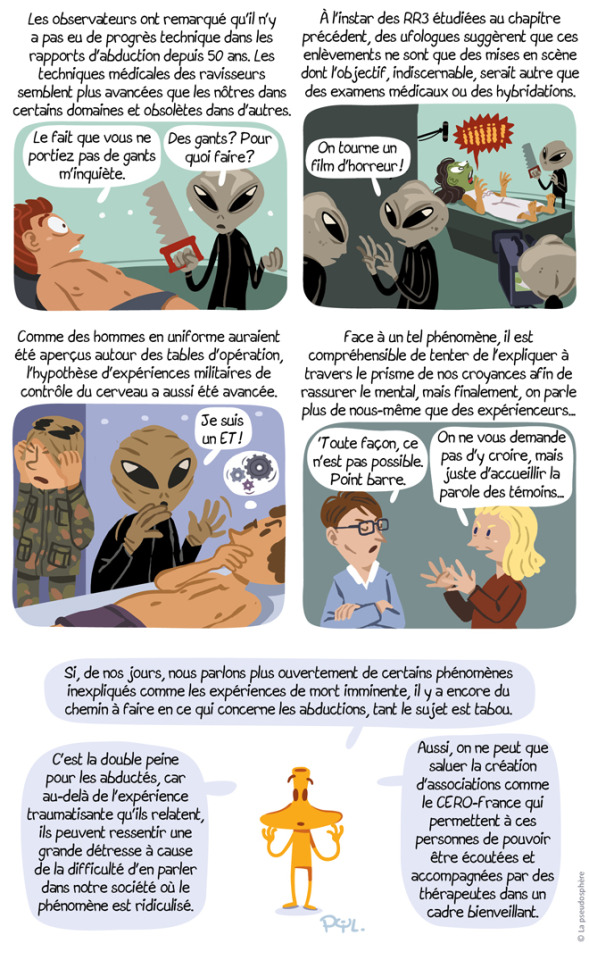
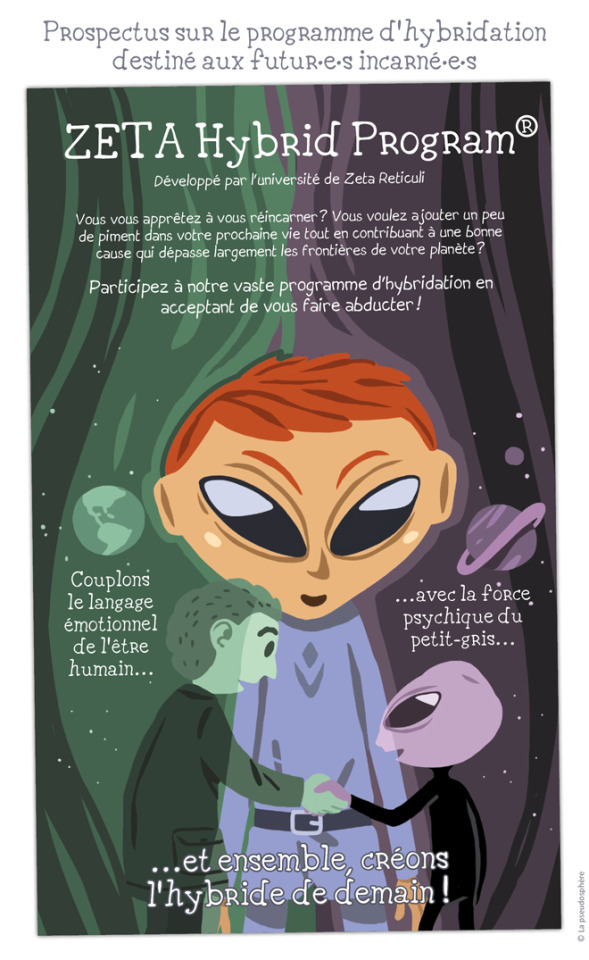
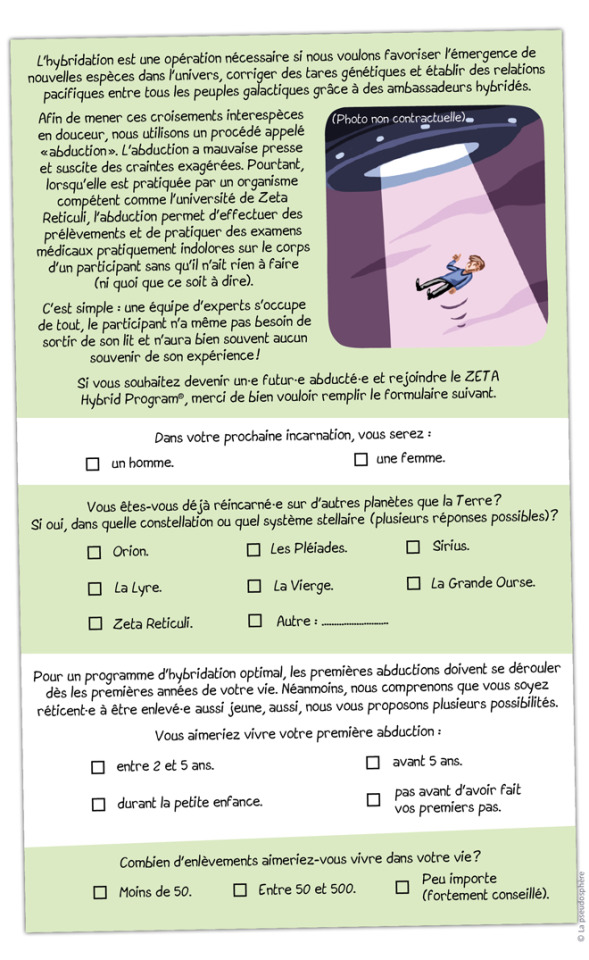
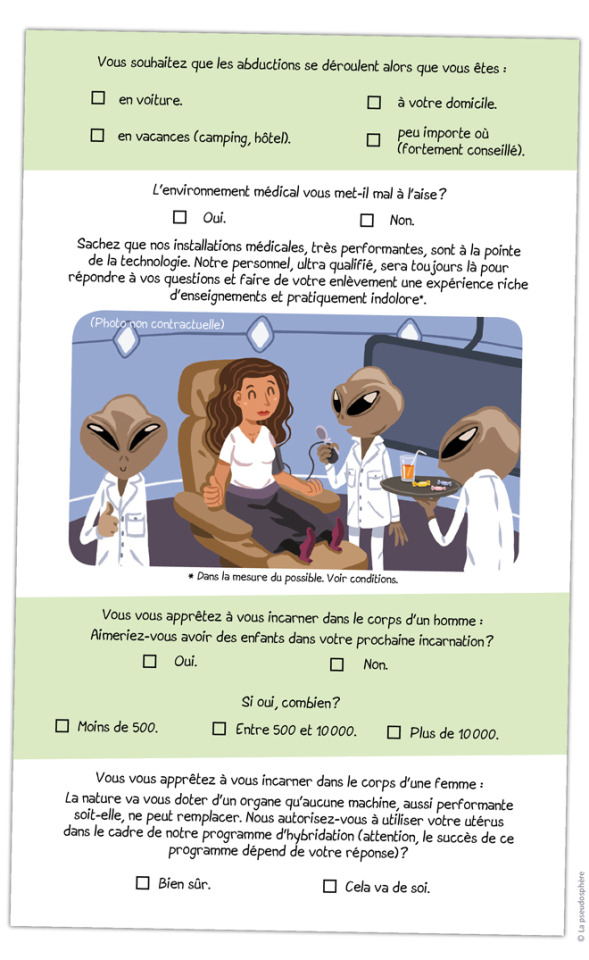
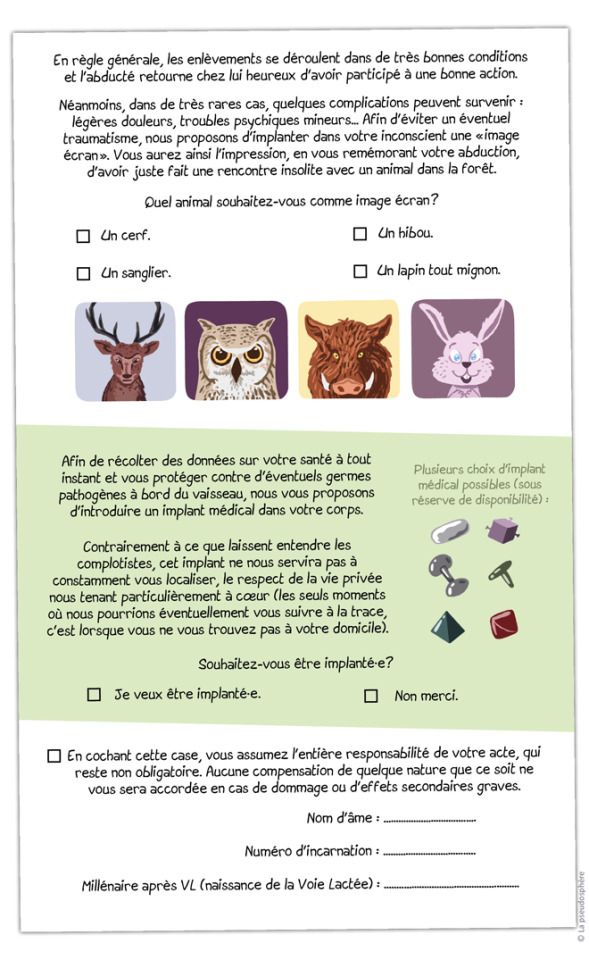
Je remercie les chercheuses et chercheurs cité·e·s dans ce pseudossier pour leurs travaux. Pour réaliser ce pseudossier, je me suis appuyé sur des films documentaires, des interviews vidéos, des ouvrages, des articles de presse ou de sites internet. Je remercie les pseudosphéristes passionnés qui en sont à l’origine.
Principales pseudosources :
Pour ce chapitre, je me suis inspiré globalement du livre suivant :
Dr John E.Mack, Enlevés par des extraterrestres, Éditions J'ai Lu, 2012, première édition en 1994 sous le titre original "abduction"
Voir aussi le témoignage de Myriame Belmyr, ancienne présidente du CERO France, elle-même abductée.
Chaîne Nuréa TV, « Extraterrestres & Abductions : Mon Histoire » avec Myriame Belmyr (https://www.youtube.com/watch?v=PlR5rL6kFpw&t=1591s)
Chaîne Nuréa TV, « Enlèvements Extraterrestres : Mon Histoire » avec Myriame Belmyr (https://www.youtube.com/watch?v=mopftp4o4T4)
Chaîne Nuréa TV, « Enlèvements Extraterrestres : Des abductés témoignent » avec Myriame Belmyr https://www.youtube.com/watch?v=ITa_r1OlJOY
Site du CERO France :
https://cero-france.com/
Historique du phénomène des abductions :
Eric Zurcher, Les apparitions mondiales d'humanoïdes, JMG Éditions, 2018 (pages 153 et 283)
Assurance contre les enlèvements extraterrestres :
https://selectra.info/assurance/actualites/generalites/assurance-extraterrestre
Nombre potentiels d'abductés :
(en anglais) Ted Goertzel, Measuring The Prevalence of False Memories: A New Interpretation of a "UFO Abduction Survey" (http://crab.rutgers.edu/~goertzel/UFO.htm)
(en anglais) https://en.wikipedia.org/wiki/Alien_abduction_claimants
Déroulement général d'une abduction :
Dr John E.Mack, Enlevés par des extraterrestres, Éditions J'ai Lu, 2012, première édition en 1994 sous le titre original "abduction", (pages 56 à 78)
Petit-gris, grand-gris et autres types d'ufonautes :
Dr John E.Mack, Enlevés par des extraterrestres, Éditions J'ai Lu, 2012, première édition en 1994 sous le titre original "abduction", (pages 65 et 66)
Stéphane Allix, extraterrestres : l'enquête, Éditions J'ai Lu, première édition en 2006 chez Albin Michel (pages 193 à 203)
Étres de lumière qui interviennent pour empêcher une abduction :
Ouvrage collectif sous la direction de Fabrice Bonvin, Ovnis et conscience, Éditions le Temps Présent, 2015 (p.57)
Enlèvement de Pascagoula :
https://fr.wikipedia.org/wiki/Enl%C3%A8vement_de_Pascagoula
(en Anglais) https://darkhorsepressnow.com/pascagoula-alien-abductions-of-1973-50-years-later/
Chaine you tube du Mufon France, Les témoins d'un enlèvement OVNI à Pascagoula en 1973 se manifestent ENFIN (https://www.youtube.com/watch?v=3ILRVTt6nYc)
https://rr0.org/science/crypto/ufo/enquete/dossier/Pascagoula/
Hybridations génétiques :
Dr John E.Mack, Enlevés par des extraterrestres, Éditions J'ai Lu, 2012, première édition en 1994 sous le titre original "abduction", (pages 665 à 669 et pages 829 à 836)
David Jacobs :
https://fr.wikipedia.org/wiki/David_Michael_Jacobs
Dolores Cannon :
Voir par exemple son ouvrage suivant : Les gardiens, Ariane Publications, 2018.
Cas de Vilas-Boas :
https://fr.wikipedia.org/wiki/Antonio_Villas_Boas
Jaqcues Lob et Robert Gigi, ceux venus d'ailleurs, éditions Dargaud, 1973 (bande dessinée)
Symptômes physiques :
Dr John E.Mack, Enlevés par des extraterrestres, Éditions J'ai Lu, 2012, première édition en 1994 sous le titre original "abduction", (pages 50 à 52, pages 785 à 790)
Témoin avec l'utérus d'une femme âgée :
Voir le cas de Sandrine. Cero France, Rencontres extraterrestres - Des expérienceurs français parlent, édité par le Cero France, 2021 (page 42).
Guérison suite à une abduction :
Chaîne Nuréa TV, « Enlèvements Extraterrestres : Des abductés témoignent » avec Myriame Belmyr https://www.youtube.com/watch?v=ITa_r1OlJOY (à 1 h 48 30 s)
Implants :
Stéphane Allix, extraterrestres : l'enquête, Éditions J'ai Lu, première édition en 2006 chez Albin Michel (pages 282 à 286)
https://fr.wikipedia.org/wiki/Implant_extraterrestre
https://fr.wikipedia.org/wiki/Roger_K._Leir
https://lesavoirperdudesanciens.com/2015/12/enlevements-et-implants-extraterrestres/
Syndrome post-traumatique :
Dr John E.Mack, Enlevés par des extraterrestres, Éditions J'ai Lu, 2012, première édition en 1994 sous le titre original "abduction", (pages 78 à 82 et pages 796 à 801)
Voir aussi les analyses des psychologues dans le livre : Cero France, Rencontres extraterrestres - Des expérienceurs français parlent, édité par le Cero France, 2021 (page 42)
https://fr.wikipedia.org/wiki/Trouble_de_stress_post-traumatique
Dépressions nerveuses voire suicides :
Stéphane Allix, extraterrestres : l'enquête, Éditions J'ai Lu, première édition en 2006 chez Albin Michel page 276 à page 281)
Témoignage de Sue :
Stéphane Allix, extraterrestres : l'enquête, Éditions J'ai Lu, première édition en 2006 chez Albin Michel (chapitre 6, pages 181 à 192)
Cas de témoins ayant demandé à leurs ravisseurs de ne plus les enlever :
Ardy Sixkiller Clarke, Rencontre avec le peuple des étoiles, Atlantes éditions, 2016 (chapitre 22, pages 267 à 274)
Missing time :
Stéphane Allix, extraterrestres : l'enquête, Éditions J'ai Lu, première édition en 2006 chez Albin Michel (chapitre 6, pages 219 à 221)
Ancienne incarnation extraterrestre :
Voir par exemple le cas d'Adeline. Cero France, Rencontres extraterrestres - Des expérienceurs français parlent, édité par le Cero France, 2021 (page 42).
À propos du profil psychologique des abductés :
Dr John E.Mack, Enlevés par des extraterrestres, Éditions J'ai Lu, 2012, première édition en 1994 sous le titre original "abduction", (pages 66, 66, 145 à 157, 865 à 872)
Étude sur les abductés :
https://news.harvard.edu/gazette/story/2003/02/alien-abduction-claims-examined-2/
https://www.newscientist.com/article/dn3395-memories-of-alien-abduction-cause-physical-effects/
Hypnose et faux souvenirs :
https://sante.lefigaro.fr/l-hypnose-peut-elle-reveiller-les-souvenirs-20220623
Dr Benjamin Simon :
Gildas Bourdais, OVNIS : vers la fin du secret ?, Éditions Le Temps Présent, 2010 (p.231)
Souvenirs traumatiques des enlevés :
Gildas Bourdais, OVNIS : vers la fin du secret ?, Éditions Le Temps Présent, 2010 (p.235 - 236)
#pseudossier#phenomene ovni#extraterrestre#soucoupe volante#pan#abduction#enlevement#petit-gris#reptilien#insectoide#Vilas-Boas#Pascagoula#hybridation#implant#cero-france#John Mack#paralysie sommeil#hypnose#reincarnation#BD#humour
1 note
·
View note
Text


Let me present the generation I'm playing at the moment, including my heir.
Maë and Noa are the twins daughters of Esther and Sebastian. They're both teenagers. Maë is in love with the concept of love. Everything she own is pink, and she take care of her long hair and appareance like the princess she wish she was. School doesn't interested her that much, except for sport and the three boys she's flirting with at the same time, which she is probably going to regret. Noa doesn't take a s*** about boys. All she think about since she's a child is being an astronaut and flying through the stars. Every aspect of her life is dedicate to that cause, her haircut, her clothes, her hobby. No wonder why she's not the heir, since she hardly look out of her telescope (that's a joke of course).
Between them is Dolores Walsh Caliente, their cousin by their mother side. Dolores is born in Tomarang, and was adopted by Amaury Walsh Lavière and Clément Caliente. After the death of Clement, she move closer to her aunt and cousins with Amaury, and a few years later, welcomed her little sister, Lou-Ann, a Sulani baby, abandoned cause of her albinism. After seeing her being so ashamed of her hair color, Dolores bleach hers to match her new little best friend.
#sims 4#original character#oc#sims 4 gameplay#sims 4 screenshots#sims 4 cc#simblr#ts4 simblr#ts4 gameplay#ts4 legacy
1 note
·
View note
Note
Wayfaring, do you have any fiction book recommendations? :)
Sure! I typically read a good mix of fiction and nonfiction, but this year I actually was more fiction heavy, and there were some really good ones. None except The Pull of the Stars are remotely medical. I keep my medical reading in the nonfiction realm. I’ll try to give a teeny summary of each.
Gold Diggers, by Sanjena Sathian. An Indian American family in Georgia try to get ahead in life using a magical mix of Ayurveda and alchemy, but the illicit source of their supplies get them in trouble.
The Seven Husbands of Evelyn Hugo, by Taylor Jenkins Reid. An aging and very private movie star gives her life story to a no-name magazine reporter. Very early in the book spoiler alert: her soul mate is not among the husbands.
Such a Fun Age, by Kiley Reid. A white influencer tries to save her black babysitter who has had a video of one of her public experiences with racism go viral against her wishes.
The Midnight Library, by Matt Haig. There are infinite possible directions your life could go in, and the protagonist gets a chance to sample some of her other lives which have been driven by different choices she has made. When your life is a choose your own adventure novel, you quickly see that the adventures are not always what you thought they’d be.
The Extraordinary Life of Sam Hell, by Robert Dugoni. An ophthalmologist with ocular albinism looks back on how he ran from what he was told was God’s will in Catholic school and discovers his purpose in life with the help of his 2 lifelong best friends.
The Lost Apothecary, by Sarah Penner. A history buff on vacation discovers an old medicine bottle in the Thames and sets off to uncover the 200 year old mystery of a secret apothecary shop that “helped out” women in dangerous marriages.
The Darkest Child, by Dolores Phillips. Tangy Mae Quinn is the darkest skinned of her mother’s 10 children, and her mother hates her for it. None of her siblings have fathers, but her mother, a prostitute, values them based on their skin tone and forces them all to leave school and work from age 12 as field laborers or housekeepers. Tangy Mae is destined to follow her mother into sex work but she has won a spot in the high school’s first integrated class and she is bound and determined to avoid her mother’s influence.
The Pull of the Stars, by Emma Donoghue. Ireland, WWI, 1919 flu pandemic, a struggling understaffed maternity ward. A nurse is helped by a young volunteer and a rebel female doctor evading the police. Over the course of 3 days they face life, death, and secret love, changing each others’ lives in the process.
The Unlikely Adventures of the Shergill Sisters, by Balli Kaur Jaswal. Three British born Punjabi sisters who are as different as they could possibly be from each other grudgingly honor their mother’s wish to spread her ashes together in their homeland. Along the way they make many unexpected discoveries about themselves, their mother, and the last trip she took to India.
Medicine Walk, by Richard Wagamese. Eldon is drinking himself to death. He calls his 16 year old son Frank, with whom he has had little to no relationship, and asks him to accompany him through the mountains to give Eldon a traditional Ojibway burial. The two connect over Eldon’s telling of his difficult life of poverty, war, and addiction.
The Invisible Life of Addie LaRue, by V.E. Schwab. Addie is born in 1714 and makes a deal with a devil to live forever. For 300 years she is forgotten by everyone she meets, until she stumbles across a bookstore clerk who remembers her name.
The Care and Feeding of Ravenously Hungry Girls, by Anissa Gray. When Althea and her husband Proctor are arrested , their reputations as pillars of the community are smashed. Althea’s sisters join forces to raise Althea’s daughters in the house they grew up in to keep them away from their brother Joe, a now charming but once extremely cruel pastor.
Transcendent Kingdom, by Yaa Gyasi. A Ghanaian- American PhD candidate studies addiction in mice, hoping to one day find a cure for the disease of addiction that killed her beloved brother. As she searches in science for answers to her life’s problems she grapples with the faith from her childhood in Alabama which now eludes her.
The Wife Upstairs, by Rachel Hawkins. Jane, a gold digging broke dog walker goes after a gated community’s most eligible widower, Eddie Rochester. As they fall for each other she wonders if she can measure up to the legendary memory of his self made millionaire deceased wife. Rumors about his wife’s mysterious death circulate around the community and Jane has her own suspicions as well as her own secrets to hide. A modern take loosely based on Jane Eyre.
The 7 1/2 Deaths of Evelyn Hardcastle, by Stuart Turton. Agatha Christie meets Groundhog Day. Evelyn Hardcastle will die every day until her killer is identified. Aiden Bishop must save her, but to add another layer of difficulty he will wake up in the body of a different houseguest every day. Definitely would recommend reading the hard copy and not the audio version, as it’s very twisty and hard to follow on audible.
218 notes
·
View notes
Text
Craggus Comfort Movies: The Ice Pirates (1984) Review
Tongue firmly in cheek, cheap and deliberately cheerful, The Ice Pirates (1984) is the eccentric, bad grandpa of Guardians Of The Galaxy. #CraggusComfortMovies #Review
Something of the odd one out in this stroll down movie memory lane, “The Ice Pirates” is a favourite cheesy movie that I came across much later in life than the age of 10 or 11 which excuses many of my other Craggus Comfort Movie choices. I don’t think this got a cinema release here in the UK otherwise I would have been all over it at the time but instead it was left for me to stumble across at…
View On WordPress
#CraggusComfortMovies#1984#7/10#Adventure#Alan Caillou#Anjelica Huston#Bonnie Campbell-Britton#Bruce Broughton#Bruce Vilanch#Carmen Filpi#Comedy#Daniel Paredes#Daryl Keith Roach#David M Haber#Debra Troyer#Dennis Lasker#Diana Webster#Dolores Albin#Fantasy#Featured#Gary Brockette#Hank Worden#Ian Abercrombie#Ira S Rosenstein#Jean Malahni#Jeremy West#John Carradine#John Foreman#John Gillespie#John M Dwyer
0 notes
Text
Holidays 9.15
Holidays
Battle of Britain Day (UK)
Born to Be Wild Day
Carbon Day
Cry of Dolores (Mexico)
Eleven Days of Global Unity, Day 5: Health
Engineer's Day (India)
Felt Hat Day
Free Money Day
German American Heritage Month begins [until 10.15]
Google.com Day
Grand Magal de Touba (Senegal)
Greenpeace Day
Grito de Dolores (a.k.a. Cry of Dolores; Mexico)
International Day of Democracy (UN)
International Dot Day
International Gotcha Day
Knowledge Day (Azerbaijan)
Kshamavani (Forgiveness Day; Jain)
LGBT Center Awareness Day
Make A Hat Day
Moonpie Day (Republic of Molossia)
National Africa Civility Day
National Caregivers Day
National Custom Framing Day
National 8-Track Tape Day [also 4.11]
National Hispanic Heritage Month begins [until 10.15]
National Hug Your Boss (UK)
National Neonatal Nurses Day
National Online Learning Day
National Tackle Kids Cancer Day
National Thank You Day
Nuestra Señora de la Bien Aparecida (Cantabria, Spain)
Restoration of Primorska to the Motherland Day (Slovenia)
Silpa Buirasri Day (Thailand)
Someday
Tackle Kids Cancer Day
Thimphu Tshechu (Bhutan)
World Afro Day
World Engineers Day
World Lymphoma Awareness Day
Food & Drink Celebrations
Butterscotch Cinnamon Pie Day
Chicken Lovers' Day
National Cheese Toast Day
National Creme de Menthe Day
National Double Cheeseburger Day
National Linguine Day
3rd Thursday in September
Free Queso Day [3rd Thursday]
National PawPaw Day [3rd Thursday]
National Teach Ag Day [3rd Thursday]
Responsible Dog Ownership Day (AKC) [3rd Thursday]
Independence Days
Costa Rica (from Spain, 1821)
El Salvador (from Spain, 1821)
Guatemala (from Spain, 1821)
Honduras (from Spain, 1821)
Nicaragua (from Spain, 1821)
Feast Days
Aicard (a.k.a. Achart; Christian; Saint)
Alpinus (a.k.a. Albinus) of Lyon (Christian; Saint)
Aprus (a.k.a. Èvre or Aper) of Toul (Christian; Saint)
Aunt Melba's Guernsey Cotillion (Muppetism)
Catherine of Genoa (Christian; Saint)
Gilles de Rais Day (Church of the SubGenius; Saint)
Goethe (Positivist; Saint)
James Chisholm (Episcopal Church)
John the Dwarf (Christian; Saint)
Joseph Abibos (Christian; Saint)
Saint Dominic in Soriano painting (Christian; Saint)
Mamilian of Palermo (Christian; Saint)
Mirin (Christian; Saint)
Nicetas the Goth (Christian; Saint)
Nicomedes (Christian; Saint)
Our Lady of Sorrows (Christian)
Virgin Mary of the Seven Sorrows Day (Slovakia)
Lucky & Unlucky Days
Sakimake (先負 Japan) [Bad luck in the morning, good luck in the afternoon.]
Premieres
American Beauty (Film; 1999)
The Black Dahlia (Film; 2006)
Blood & Chocolate, by Elvis Costello (Album; 1986)
Blue Train, by John Coltrane (Album recorded; 1957)
Bugsy Malone (Film; 1976)
Fast Times at Ridgemont High, by Cameron Crowe (Novel; 1981)
It, by Stephen King (Novel; 1986)
Lost in Space (TV Series; 1967)
The Shadow Rising, by Robert Jordan (Novel; 1992) [Wheel of Time #4]
The Silmarillion, by J.R.R. Tolkien (Novel; 1977)
Some Time in New York City, by John Lennon and Yoko Ono (Album; 1972)
Sports, by Huey Lewis and the News (Album; 1983)
Today’s Name Days
Dolores, Melitta (Austria)
Dolores, Marija, Tugomil (Croatia)
Jolana (Czech Republic)
Eskild (Denmark)
Kulmo, Kulno, Kurmo, Kuulo (Estonia)
Sirpa (Finland)
Dolores, Roland (France)
Dolores, Melissa, Melitta (Germany)
Nikitas, Visarion (Greece)
Enikő, Melitta (Hungary)
Mamiliano, Maria (Italy)
Gunvaldis, Nikodems, Sandra (Latvia)
Eugenija, Nikodemas, Rimgailė, Vismantas (Lithuania)
Aslak, Eskil (Norway)
Albin, Budzigniew, Maria, Nikodem (Poland)
Jolana (Slovakia)
Angustias, Dolores (Spain)
Sigrid, Siri (Sweden)
Mykyta (Ukraine)
Delora, Delores, Dolores, Lola, Lolita (USA)
Today is Also…
Day of Year: Day 258 of 2022; 107 days remaining in the year
ISO: Day 4 of week 37 of 2022
Celtic Tree Calendar: Muin (Vine) [Day 13 of 28]
Chinese: Month 8 (Guìyuè), Day 20 (Xin-Wei)
Chinese Year of the: Tiger (until January 22, 2023)
Hebrew: 19 ʼĔlūl 5782
Islamic: 18 Ṣafar 1444
J Cal: 18 Aki; Threesday [18 of 30]
Julian: 2 September 2022
Moon: 71%: Waning Gibbous
Positivist: 6 Shakespeare (10th Month) [Goethe]
Runic Half Month: Ken (Illumination) [Day 6 of 15]
Season: Summer (Day 86 of 90)
Zodiac: Virgo (Day 23 of 31)
0 notes
Text
Holidays 9.15
Holidays
Battle of Britain Day (UK)
Born to Be Wild Day
Carbon Day
Cry of Dolores (Mexico)
Eleven Days of Global Unity, Day 5: Health
Engineer's Day (India)
Felt Hat Day
Free Money Day
German American Heritage Month begins [until 10.15]
Google.com Day
Grand Magal de Touba (Senegal)
Greenpeace Day
Grito de Dolores (a.k.a. Cry of Dolores; Mexico)
International Day of Democracy (UN)
International Dot Day
International Gotcha Day
Knowledge Day (Azerbaijan)
Kshamavani (Forgiveness Day; Jain)
LGBT Center Awareness Day
Make A Hat Day
Moonpie Day (Republic of Molossia)
National Africa Civility Day
National Caregivers Day
National Custom Framing Day
National 8-Track Tape Day [also 4.11]
National Hispanic Heritage Month begins [until 10.15]
National Hug Your Boss (UK)
National Neonatal Nurses Day
National Online Learning Day
National Tackle Kids Cancer Day
National Thank You Day
Nuestra Señora de la Bien Aparecida (Cantabria, Spain)
Restoration of Primorska to the Motherland Day (Slovenia)
Silpa Buirasri Day (Thailand)
Someday
Tackle Kids Cancer Day
Thimphu Tshechu (Bhutan)
World Afro Day
World Engineers Day
World Lymphoma Awareness Day
Food & Drink Celebrations
Butterscotch Cinnamon Pie Day
Chicken Lovers' Day
National Cheese Toast Day
National Creme de Menthe Day
National Double Cheeseburger Day
National Linguine Day
3rd Thursday in September
Free Queso Day [3rd Thursday]
National PawPaw Day [3rd Thursday]
National Teach Ag Day [3rd Thursday]
Responsible Dog Ownership Day (AKC) [3rd Thursday]
Independence Days
Costa Rica (from Spain, 1821)
El Salvador (from Spain, 1821)
Guatemala (from Spain, 1821)
Honduras (from Spain, 1821)
Nicaragua (from Spain, 1821)
Feast Days
Aicard (a.k.a. Achart; Christian; Saint)
Alpinus (a.k.a. Albinus) of Lyon (Christian; Saint)
Aprus (a.k.a. Èvre or Aper) of Toul (Christian; Saint)
Aunt Melba's Guernsey Cotillion (Muppetism)
Catherine of Genoa (Christian; Saint)
Gilles de Rais Day (Church of the SubGenius; Saint)
Goethe (Positivist; Saint)
James Chisholm (Episcopal Church)
John the Dwarf (Christian; Saint)
Joseph Abibos (Christian; Saint)
Saint Dominic in Soriano painting (Christian; Saint)
Mamilian of Palermo (Christian; Saint)
Mirin (Christian; Saint)
Nicetas the Goth (Christian; Saint)
Nicomedes (Christian; Saint)
Our Lady of Sorrows (Christian)
Virgin Mary of the Seven Sorrows Day (Slovakia)
Lucky & Unlucky Days
Sakimake (先負 Japan) [Bad luck in the morning, good luck in the afternoon.]
Premieres
American Beauty (Film; 1999)
The Black Dahlia (Film; 2006)
Blood & Chocolate, by Elvis Costello (Album; 1986)
Blue Train, by John Coltrane (Album recorded; 1957)
Bugsy Malone (Film; 1976)
Fast Times at Ridgemont High, by Cameron Crowe (Novel; 1981)
It, by Stephen King (Novel; 1986)
Lost in Space (TV Series; 1967)
The Shadow Rising, by Robert Jordan (Novel; 1992) [Wheel of Time #4]
The Silmarillion, by J.R.R. Tolkien (Novel; 1977)
Some Time in New York City, by John Lennon and Yoko Ono (Album; 1972)
Sports, by Huey Lewis and the News (Album; 1983)
Today’s Name Days
Dolores, Melitta (Austria)
Dolores, Marija, Tugomil (Croatia)
Jolana (Czech Republic)
Eskild (Denmark)
Kulmo, Kulno, Kurmo, Kuulo (Estonia)
Sirpa (Finland)
Dolores, Roland (France)
Dolores, Melissa, Melitta (Germany)
Nikitas, Visarion (Greece)
Enikő, Melitta (Hungary)
Mamiliano, Maria (Italy)
Gunvaldis, Nikodems, Sandra (Latvia)
Eugenija, Nikodemas, Rimgailė, Vismantas (Lithuania)
Aslak, Eskil (Norway)
Albin, Budzigniew, Maria, Nikodem (Poland)
Jolana (Slovakia)
Angustias, Dolores (Spain)
Sigrid, Siri (Sweden)
Mykyta (Ukraine)
Delora, Delores, Dolores, Lola, Lolita (USA)
Today is Also…
Day of Year: Day 258 of 2022; 107 days remaining in the year
ISO: Day 4 of week 37 of 2022
Celtic Tree Calendar: Muin (Vine) [Day 13 of 28]
Chinese: Month 8 (Guìyuè), Day 20 (Xin-Wei)
Chinese Year of the: Tiger (until January 22, 2023)
Hebrew: 19 ʼĔlūl 5782
Islamic: 18 Ṣafar 1444
J Cal: 18 Aki; Threesday [18 of 30]
Julian: 2 September 2022
Moon: 71%: Waning Gibbous
Positivist: 6 Shakespeare (10th Month) [Goethe]
Runic Half Month: Ken (Illumination) [Day 6 of 15]
Season: Summer (Day 86 of 90)
Zodiac: Virgo (Day 23 of 31)
0 notes
Text
Il cuore è un organo: Il romanzo di Francesca Michielin

Il cuore è un organo: Il romanzo di Francesca Michielin
Ci sono libri che incuriosiscono a partire al titolo ancora prima di scoprire l’inaspettata autrice, noi di Vortici.it ci riferiamo a: Il cuore è un organo (Mondadori Editore) di Francesca Michielin, si proprio lei, la cantante! al suo debutto come scrittrice. Nello specifico si tratta di un romanzo…
Il libro è disponibile anche online cliccando qui.
Non cerco nulla. Non ho bisogno di nulla. Non penso quasi a nulla. È uno di quei periodi in cui vago nella mia vita come potrebbe fare un passante, un turista, un cavaliere errante, un personaggio secondario, sicuramente non come la protagonista della mia avventura, quale dovrei essere fino in fondo e, in fondo, sono.
Questa è la storia di Verde, cantautrice poco più che ventenne all’apice del successo con un’innata propensione a sezionare con cura i sentimenti; ma è anche la storia di Regina, vecchia gloria della musica leggera con una naturale predisposizione all’eccentricità; e sì, è anche la storia di Anna, che senza saperlo le ha fatte entrare l’una nella vita dell’altra. Ma soprattutto, è la storia di un incontro tra donne apparentemente molto diverse tra loro, accomunate però da una stessa, viscerale passione per la musica e da uno stesso e profondo dolore, uno di quelli che ti premono sul petto fino a spezzarti la voce e ti fanno desiderare di sparire. Un’amicizia nata un pò per caso e che si trasforma, giorno dopo giorno, in una rivoluzione sotterranea lenta ma inarrestabile destinata a cambiarle per sempre. E a far accettare il fatto che talvolta, proprio quando nulla si spiega più, quando nulla è più incasellabile e ordinato, proprio allora, tutto inizia ad avere improvvisamente senso. Con Il cuore è un organo, Francesca Michielin ci regala una storia tutta al femminile che apre una nuova finestra sul suo mondo, che in parte conosciamo già grazie alle sue canzoni ma che qui, di pagina in pagina, raggiunge un’intensità e una profondità inedite e toccanti.
Rilevante diventa anche quest’affermazione: «Tra le pagine di “Il cuore è un organo” si riafferma con orgoglio il diritto a perdere, di tanto in tanto, il controllo. Andare in bici senza mani, commuoversi durante un requiem, e chissà, forse anche ammettere di essere innamorati della propria migliore amica.» – Beatrice Toscano per Maremosso.
Leggi estratto…
Vi consigliamo di gustarvi anche quest’intervista non certo banale ma ricca di contenuti(occorre pazientare una manciata di secondi, affinchè il volume si assesti):
Mi permetto un'osservazione personale azzardata(forse), alla luce di quanto letto, il cuore è molto più di un organo!
Chi é l'autrice Francesca Michielin
Francesca Michielin è una delle artiste più complete e interessanti del panorama musicale attuale. Cantautrice e polistrumentista, festeggia nel 2022 i dieci anni di carriera. Cinque album, collaborazioni con le firme più importanti della scena musicale italiana, ha anche composto colonne sonore. Diplomata al conservatorio, due volte seconda al Festival di Sanremo (nel 2016 con Nessun grado di separazione e nel 2021 con Chiamami per nome in coppia con Fedez), ha rappresentato l’Italia all’Eurovision Song Contest. Ama la scrittura da sempre, si è messa alla prova per anni nel suo blog e dal 2021 come autrice (oltre che conduttrice) nel podcast MASCHIACCI - Per cosa lottano le donne oggi?Se hai letto questo articolo, forse potrebbe interessarti anche:
Tutto è in frantumi e danza
* Abbiate cura di voi, dei vostri cari e dei vostri amici.Immagine di copertina: Albin Olsson, CC BY-SA 4.0 , via Wikimedia Commons
Read the full article
0 notes
Text
Anite di Tegea: una grande poetessa con le palle, l’Omero donna che non scriveva di cose tenere e delicate, ma di morenti, militari caduti, suicidi e cani da corsa, risorge dall’antichità
Un pregiudizio difficile da estirpare è che le poetesse debbano scrivere solo di cose dolci, tenere e delicate, in toni gentili e vezzosi. Un disgraziato malinteso, si capisce. Ugo Pontiggia è troppo acuto per caderci, però, e lo dimostra nella sua traduzione con commento degli Epigrammi di Anite di Tegea (La Finestra editrice, 79 pp., 16 euro). Anite è una poetessa vissuta in età ellenistica, in Arcadia, e appartenente, come Nosside, altra poetessa, e Leonida di Taranto, “all’area dorica del primo epigramma ellenistico, caratterizzata da una predilezione per le descrizioni ambientali e dal realismo delle situazioni e dei dettagli” (D. Del Corno). Di lei ci restano 21 epigrammi, giunti a noi perché compresi in quel ricchissimo repertorio del genere che è l’Antologia Palatina: essi vertono su diversi argomenti, e sono caratterizzati da una genuina effusione della sensibilità e da una partecipazione simpatetica alle minute vicende che immortalano: ma ciò non significa che l’ispirazione di Anite sia esile, perché questa autrice sa entrare nel cuore delle vicende, anche se piccole e quotidiane (ecco forse a partire da dove, nel tempo, ella poté venire malintesa).
La varietà fra gli epigrammi ellenistici non era solo tematica, cioè non si esplicitava solo nella scelta dei soggetti (erotici, funebri, letterari, ecfrastici, etc.), ma si manifestava anche nella diversità fra vari gruppi poetici, detti “scuole”: e alla scuola dorica si può ricondurre, infatti, l’interesse per il quotidiano e il familiare. Gli Epigrammi di Anite si concentrano, pertanto, sulle piccole cose di ogni giorno: un capro con cui i bambini giocano, dopo averlo adornato di briglie di porpora, un epitaffio per una cavalletta e per una cicala cui Mirò, una bambina, fece una tomba comune, la sepoltura per un cavallo, meneidaios, “valoroso in battaglia”, un augurio di buon riposo a un viandante che può ristorare il corpo stanco sotto verdi fronde nella calura infuocata. Tutte situazioni molto semplici, che Anite sa immortalare con accuratezza e precisione. Tuttavia, la sua lingua non è leziosa, né lo è la traduzione di Pontiggia, ma precisa, esatta, direi quasi affilata nella sua essenzialità: e questo è il maggior pregio del volume, che ha anche una veste grafica di rara eleganza, a partire dalla copertina, una fotografia di Tina Modotti raffigurante una giovane, con un semplice abito di un bianco abbagliante, colta nell’attimo in cui il vento inizia a sollevarle i capelli nerissimi.
Della vita di Anite, noi conosciamo molto poco: una testimonianza antica, in Pausania (Viaggio in Grecia 10, 38, 13), così dice: “Il santuario di Apollo era ridotto a un rudere. Lo aveva fatto costruire in origine un certo Falisio, un privato. Falisio si era ammalato agli occhi ed era quasi cieco; il dio di Epidauro gli mandò la poetessa Anite con una lettera sigillata. Anite aveva fatto un sogno che presto divenne realtà. Trovò fra le sue mani la lettera sigillata e, giunta per mare a Naupatto, chiese a Falisio di togliere il sigillo e di leggerla. Lui, cieco, non credeva di poter vedere le parole, ma, sperando che da Asclepio venisse qualcosa di buono, tolse il sigillo e, guardando la cera, guarì. Diede ad Anite quanto era scritto: duemila stateri d’oro”: un brano, di ispirazione fra il leggendario e il religioso, che, con il consueto uso del mondo antico dell’aneddoto, ci comunica il valore della poetessa e il potere della sua azione.
Come nota il curatore della presente edizione Ugo Pontiggia, mancava a oggi un’analisi del carattere unitario della poesia di Anite: le osservazioni della maggior parte dei critici, anche di Albin Lesky (cfr. Storia della Letteratura Greca – III –L’Ellenismo, trad. it. Di F. Codino, Milano 1996, p. 918), si fermano a sottolinare la freschezza degli epigrammi di questa autrice, il suo aderire minutamente alla realtà quotidiana e così via. Pontiggia però si spinge oltre, e, a integrazione di quanto già osservato in passato, nota come la poesia di Anite sorprenda per la tecnica di ripresa allusiva dei testi antichi, soprattutto di Omero: negli epigrammi qui presentati, infatti, “innovazione e tradizione si fondono in una nuova e riposata lingua”, in cui risalta “la capacità di accostarsi ai soggetti del racconto con delicatezza e compassione” (p. 9): una bimba morente, tre giovani donne che scelgono di suicidarsi, alcune ragazze morte prima delle nozze, un comandante caduto, un cane da corsa, i piccoli animali che allietano i giochi dei bambini, sono i personaggi di Anite, che per ognuno di essi “sa trovare parole antiche e talora nuovissime, ma tutte nel segno di una condivisione nel momento estremo, con una grazia e una raffinata semplicità che colpirà il lettore” (ibid.).
Non vi è più in questa poesia la vertigine del divino, di una parola poetica che apre uno squarcio in un mondo dominato dalla potenza degli dèi, e nemmeno c’è la ricerca fine a se stessa dello splendore della lingua: piuttosto troviamo una poesia che riesce, attraverso le minute esperienze del quotidiano, anche nei suoi particolari intrisi di dolore, a proporci un’attenzione particolare per i deboli e i sofferenti. Certo, colpisce che nella poesia di Anite abbiano un ruolo di primo piano i bambini: nell’Iliade essi occupavano uno spazio marginale, anche se, già in Omero, si possono trovare i primordi di una capacità descrittiva piena di partecipazione simpatetica, con grande attenzione alla bellezza, che troverà ulteriore sviluppo nei testi della poetessa ellenistica: per esempio, Omero sottolinea la bellezza di Astianatte, paragonato a una stella, che piange spaventato, vedendo il gigantesco elmo del padre Ettore ondeggiare davanti a sé con il suo intimidente cimiero, e che con il suo pianto determina una distensione dell’atmosfera creatasi fra i genitori; e più tardi, Simonide, nel celebre Frammento 543 Page, descriverà Danae la quale, rinchiusa col figlioletto Perseo in una cassa abbandonata alla mercé delle onde del mare, chiederà al piccolo di dormire per non temere quel che fa paura nella notte senza luce.
Forse, ipotizza Pontiggia, questa attenzione per i piccoli, gli ultimi, coloro che sono toccati dall’ombra della morte, è il portato di una tradizione antichissima, propria del folklore greco (e non solo greco) che assegnava alle donne un ruolo fondamentale nell’elaborazione del lutto e nei riti funebri, e, specularmente, nei riti che riguardano non solo la morte, ma anche la nascita. Pensiamoci: gli eroi greci piangono, e danno ampiamente sfogo al loro dolore con le lacrime (pensiamo ad Achille per la morte di Patroclo), ma poi sono capaci di allontanare da sé questa afflizione, riconoscendo in questo atto la prerogativa dell’agire maschile: e così Archiloco, in un’elegia per alcuni concittadini periti in mare, afferma, all’ultimo verso: “Ma fin d’ora sopportate, respingendo il femmineo lutto” (Frammento 10 Tarditi).
Non erano certo solo le donne a essere incaricate del compianto funebre nell’antichità: lo facevano anche gli uomini, e anche lamentatori professionali, ma non è un caso che la conclusione dell’Iliade coincida con il momento di massimo pathos provocato dal compianto delle donne troiane per la morte di Ettore, compianto che viene assegnato in prima battuta alla moglie, Andromaca, e alla madre Ecuba, e, infine, a Elena. Questo elemento permane in età storica, e quindi anche nella poesia di Anite, quando ancora all’elemento femminile si assegna un ruolo centrale nel dare inizio alla vita, e nel sancirne la fine, accompagnando con i canti rituali l’estremo rito, il commiato dall’armonia e dalla bellezza del cosmo, che si rivela anche nei suoi dettagli.
Silvia Stucchi
L'articolo Anite di Tegea: una grande poetessa con le palle, l’Omero donna che non scriveva di cose tenere e delicate, ma di morenti, militari caduti, suicidi e cani da corsa, risorge dall’antichità proviene da Pangea.
from pangea.news https://ift.tt/2P4xjUe
2 notes
·
View notes
Text
¿Pero por qué, en lugar de eso, y a pesar de toda su inocencia, reaparecería en sus ojos la expresión de una timidez turbada, esa incertidumbre que hubiera, sin duda, dado la victoria a la superiora si ésta hubiera renovado sus tentativas? ¿Era porque sabía que sus mejillas se iban hundiendo y que sus ojos se agrandaban? Eso se producía a ojos vistas, mucho más rápidamente que cuando había regresado del país llano, y su piel morena iba adquiriendo un tono amarillento. Era como si tuviese razones para sentir vergüenza y despreciarse a sí mismo en un medio que, como decía el señor Albin, no se preocupaba de otra cosa que de gozar las ventajas infinitas de la vergüenza. ¿Delante de qué y ante quién bajaba los ojos y hacía huidiza su mirada antes tan franca? Que extraño es ese pudor ante la vida, de la criatura que se refugia en un rincón para reventar, persuadida de que no puede esperar de la naturaleza exterior ningún respeto ni ninguna piedad ante su dolor y su muerte, persuadida con razón, puesto que las bandadas de pájaros emigrantes, no solamente no honran a sus compañeros enfermos, sino que los arrojan con cólera y desprecio a picotazos.
Thomas Mann - "La montaña mágica"
0 notes
Photo

24 years ago I had to say goodbye to my brother Albin after his lost long battle against cancer. It’s a hurt I have never recovered from. Friday I said goodbye to my last brother, Ismael, who didn’t win against heart disease. This world is so cruel! My heart is shattered and can never again be repaired. I lost the kindest, gentlest, humblest, most caring, peaceful and loving brother a sister could ask for. He never said no to anyone, never hurt a fly and always found ways to show you that he was thinking about you and cared. He will never again show up at my door and I don’t want to accept it! I hope one day I’ll understand why they had to go so soon. Maelito I love you always, will miss you forever, until we meet again. 💔 Te quiero. —- 24 años atras tuve que decirle adiós a mi hermano Albin quien perdió su larga batalla contra el cancer. Es un dolor de la cual nunca he podido recuperarme. Este viernes tuve que despedirme de mi último hermano, Ismael, quien no gano contra el corazón. Este mundo es tan cruel! Mi corazón está destrozado y nunca se podrá reparar. Perdi el hermano más humilde, amable, pacifico, y amoroso que una hermana pueda pedir. Nunca le decía un no a nadie, nunca le hizo daño a nadie y siempre encontraba maneras de hacerte saber que estaba pensando en ti y que le importabas. Nunca más se aparecerá por mi puerta y yo no quiero aceptar esto! Espero algún día entender porque se nos tuvieron que ir tan temprano. Maelito te amo y extrañaré siempre. Hasta que nos volvamos a ver. 💔 Te quiero. #losingabrothersucks #losing2brothersisbrutal #howtolivewithoutyou? (at South Weymouth) https://www.instagram.com/p/CHmi-GwJOrF/?igshid=rjcyasbzacyn
0 notes
Text
“Tu non hai idea di quanto duri la lotta fra il buio e la luce”. Beppe Fenoglio, il Capitano Achab della letteratura italiana
La linea la tracciò Cesare Pavese: la letteratura italiana andò a risciacquarsi tra Tamigi e Mississippi, nel mondo anglosassone. Non tanto in quello – vagamente imperialista – d’Albione, in realtà, ma sulle coste statunitensi. Pavese è stato un po’ un Cristoforo Colombo, scoprendo il “nuovo mondo” della letteratura di laggiù. Pur stralunato da una opzione politica: «Per molta gente l’incontro con Caldwell, Steinbeck, Saroyan, e perfino col vecchio Lewis, aperse il primo spiraglio di libertà, il primo sospetto che non tutto nella cultura del mondo finisse coi fasci» (3 agosto 1947, “l’Unità”). La prova del nove la offrono i testi: le poesie di Lavorare stanca imitano stancamente le atmosfere di Walt Whitman (su cui Pavese piglia la laurea nel 1930) o di Edgar Lee Masters (l’Antologia di Spoon River fu pubblicata da Einaudi nel 1943, ma la mano dell’amata Fernanda Pivano, la traduttrice, fu impugnata da Pavese); i romanzi non hanno il passo linguistico di William Faulkner o di John Steinbeck né di John Dos Passos, tutti autori tradotti e frequentati da Pavese.
*
Diamo a Cesare quel che è di Cesare, cioè l’arguzia dei pionieri, l’atletismo dei visionari, ma l’idea, ripeto, è che la frequentazione statunitense di Pavese sia per lo più una chimera politica (la vecchia Europa ha partorito i nazionalsocialismi, gli States sono, comunque, “liberatori”, in tutti i sensi). Tant’è che alla fine degli scrittori cowboy non ne può più: nello stesso articolo del 1947 Pavese conclude che «a esser sinceri insomma ci pare che la cultura americana abbia perduto il magistero, quel suo ingenuo e sagace furore che la metteva all’avanguardia del nostro mondo intellettuale. Né si può non notare che ciò coincide con la tine, o sospensione, della sua lotta antifascista». Discorso che coincide, tra l’altro, con l’intrusione di Pavese nella grecità classica, marmorea, quella dei Dialoghi con Leucò, delle ultime scaglie liriche, delle traduzioni (da lui fortemente volute) dell’Iliade e dell’Odissea compiute per Einaudi da Rosa Calzecchi Onesti.
*
L’altra faccia di Pavese è Beppe Fenoglio. Uno di Santo Stefano Belbo, l’altro di Alba, Pavese ci ha insegnato che Middle West e Piemonte sono la stessa cosa, apprestandosi ad essere lo Sherwood Anderson delle Langhe; Fenoglio, invece, negli stessi luoghi linguistici vedeva un’amletica Danimarca, la landa scabra dove Re Lear parla coi topi cercando Dio, e lui è una specie di Beda, «l’ardente spiro», che narra di riti ancestrali e memorabili rese. Eppure, sorta di sinistro gemellaggio, Pavese traduce Moby Dick di Melville (senza che rimanga traccia di Achab nella sua testa) e Il partigiano Johnny di Fenoglio, secondo l’ultracelebre definizione di Dante Isella, «è come il Moby Dick nella letteratura marinara». Fenoglio, però, devia dalla rotta oceanica, non si mette la bandana da pistolero, preferisce le bianche scogliere di Dover, dove s’incaglia una lingua allo stesso tempo ancestrale e postatomica, impregnata della “King James” e dell’eroismo di un Oliver Cromwell. La scelta della lingua del Bardo è una fede, un marchio di purezza, fin da subito, dagli anni del ginnasio “Giuseppe Govone” di Alba, perché, insomma, l’Europa non si cede né decade, e il piemontese, per natura aristocratico, trova agio tra le nude, scarne, plumbee colline inglesi. Alba come Albione.
*
La strategia delle scelte è decisiva. Intanto, Beppe vuole come maestri di lingua i poeti. Perciò, Il partigiano Johnny ha il ritmo dell’epica, la sinfonia del poema celeste, possiamo giocare a spezzarlo in versi, reggerebbe benissimo. Gli esperimenti di traduzione sono dentro il corpo di Thomas S. Eliot, di Coleridge, di Robert Browning. La sua predilezione, comunque, è per i “sinistri”, i reietti, gli incompiuti, le torsioni di Christopher Marlowe, i grovigli linguistici di John Donne, anche quando opta per il romanzo, a vent’anni, sceglie il capolavoro torbido, Wuthering Heigths di Emily Brönte, che diventa La voce nella tempesta, una riduzione teatrale. Che è poi illuminato alla versione cinematografica del romanzo, firmata da William Wyler nel 1939, con un Heathcliff/Laurence Olivier dalla presenza scenica formidabile, sembra un eroe di Fenoglio. Il quale non è un archivista del tempo che fu, ma fa precipitare l’arcano anglosassone nell’epopea pop hollywoodiana, nel suo Diario del 1954 Fenoglio cita Giungla d’asfalto, il film di John Huston (del 1950), un genio nel trapiantare i grandi libri sul grande schermo (in questo caso, è ispirato al romanzo di William Riley Burnett), il quale, nel 1956, siamo sempre lì, manda in orbita il suo Moby Dick, con micidiale Achab/Gregory Peck, un altro che va bene in un libro di Fenoglio.
*
L’affinità linguisticamente più proficua, comunque, è con il poeta inglese e anglicano Gerard Manley Hopkins (1844-1889), autore del poemetto The Wreck of Deutschland (incipit: «Tu mi domini/ Dio! che dai pneuma e pane;/ riva del mondo, ritmo del mare;/ signore dei vivi e dei morti»), in cui «sottopone un linguaggio, in prevalenza di monosillabi sassoni, quasi a una serie di choc elettrici», scrive Mario Praz, secondo il quale il poeta mescola l’altezza di Pindaro all’arte di Van Gogh. Un po’ come Fenoglio, l’idea è quella di descrivere con il linguaggio un mondo in frantumi, riparandolo, dicendone l’ambiguo e il glorioso. Detto della tavolozza linguistica, resta comunque la struttura, l’ispirazione fondante. Alle spalle dello sforzo di Fenoglio traluce fosforico il Paradise Lost di John Milton (1608-1674), l’esilio da un mondo di bene a cui nessun esodo potrà più ricondurci. Riecheggia in alcuni brani di Fenoglio la guerra tra le falangi angeliche contro le orde di Satana, ad esempio in Atto unico, per voce di Bob: «E tu? Tu vedi il mondo allo stato di caos. Tu non hai idea di quanto duri la lotta fra il buio e la luce, nel cuore dell’inverno. E che cosa sia! Un groviglio di enormi serpenti mi pare, gli uni chiari e gli altri neri. Una cosa da dar raccapriccio e… nausea! Sì! Tutto mi fa nausea, tutto si muove, il cielo e la terra, capisci, si muove… come un feto!».
*
La nausea di Fenoglio non è né quella colta di Leopardi né quella “di parte” di Moravia, il suo Bob parla come un angelo ai confini della galassia, come Cratos e Bia, nel Prometeo incatenato di Eschilo, sopra uno sperone roccioso, nella gelida Scizia. Sono parole plumbee e assolute. Proprie di un combattente, Fenoglio come John Milton, militante per Oliver Cromwell, uno dei miti, tra l’altro, di Beppe da ragazzo. Ma il centro della lotta è – sempre – con il proprio cuore, afferrare il male che lì divampa e dargli un senso, una ragione, una redenzione. Tanto che l’opera di Fenoglio, in fondo, è una sorta di teodicea, soprattutto il libro del partigiano, Johnny, Giovanni, il “Dio ha misericordia”, l’uomo che scava gloria dalla guerra, che si ostina, nel cuore dell’orrore, a tracciare pietà.
*
A differenza di Pavese, ecco, l’intrusione di Fenoglio nella lingua inglese non è formale ma sostanziale. E non lo esilia in un paradiso perduto degli intellettuali, piuttosto, è ciò che lo incolla alla terra, alla stirpe: «Io sento tremendamente i vecchi Fenoglio, pendo per loro (chissà se un postero Fenoglio mi sentirà come io sento loro)». Davvero, l’anglosassone, purissimo e puritano, è il Muro del Pianto su cui Fenoglio redige la sua genealogia, un mezzo per compiere la propria opera biblica (d’altronde, anche il decantato Melville diceva di aver letto nella sua vita marinara soltanto Shakespeare e la Bibbia, il resto erano leviatani velocissimi, il libro di Giobbe dispiegato lungo l’oceano), Londra come Gerusalemme, Alba si staglia come le albine muraglie della Sion celeste.
*
Tento di forzare i limiti del caso. Nello stesso anno, il 1954, escono due libri capitali, opposti: Il Signore degli Anelli di J.R.R. Tolkien e Il Signore delle Mosche di William Golding. Agli inizi di agosto nei “Gettoni” Einaudi, sotto lo scettro di Elio Vittorini, un altro, come Pavese, che esplorava gli americani facendo dire a costoro pressoché soltanto ciò che gli era utile, viene pubblicata La malora di Beppe Fenoglio. Una storia dura, semenza di capolavori futuri, che squarcia il velo di pizzo della letteratura italiana, s’immerge nel covo del male, senza l’ansia di uscirne vincitore (la battaglia è ancora lunga). Come nei grandi autori d’Albione, Fenoglio intaglia il male, il tema centrale e definitivo. Così, in Italia, terra di scrittori “minori”, anzi, di scrittori troppo snob per accettare il giudizio di altri oltre la loro stretta cerchia, abbiamo un gigante. Più del declamato Petrolio di Pasolini, dei Fratelli d’Italia di Arbasino, dell’impossibile Horcynus Orca di D’Arrigo, perfino della Cognizione del dolore di Gadda, il vero Romanzo Italiano del Novecento è Il partigiano Johnny. Pigliatelo così, il mio assunto, come un assioma che non necessita sperimentazioni. (d.b.)
L'articolo “Tu non hai idea di quanto duri la lotta fra il buio e la luce”. Beppe Fenoglio, il Capitano Achab della letteratura italiana proviene da Pangea.
from pangea.news https://ift.tt/2xUea0q
0 notes